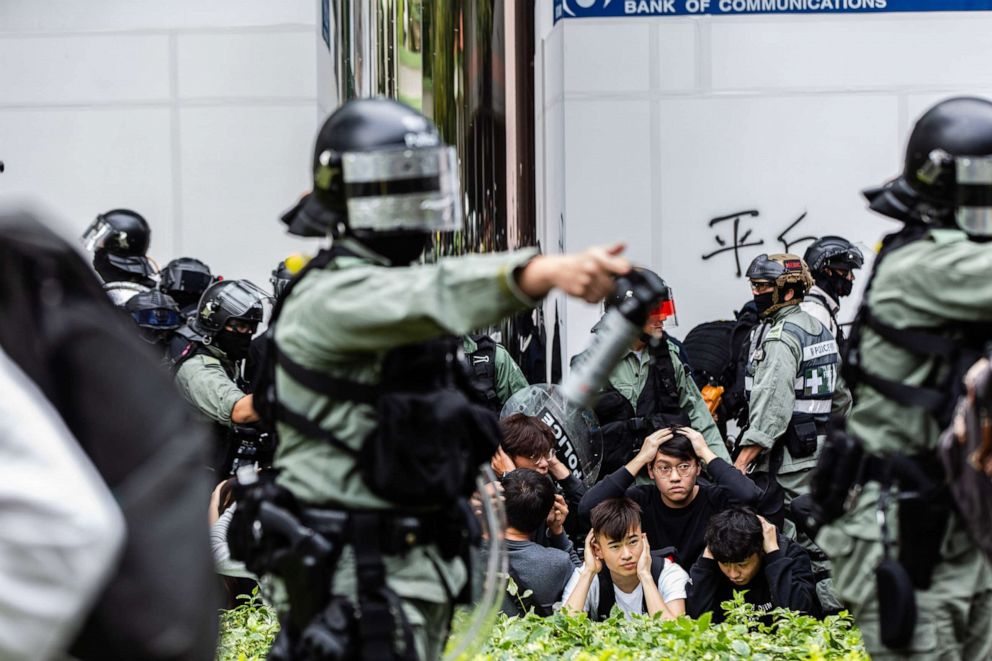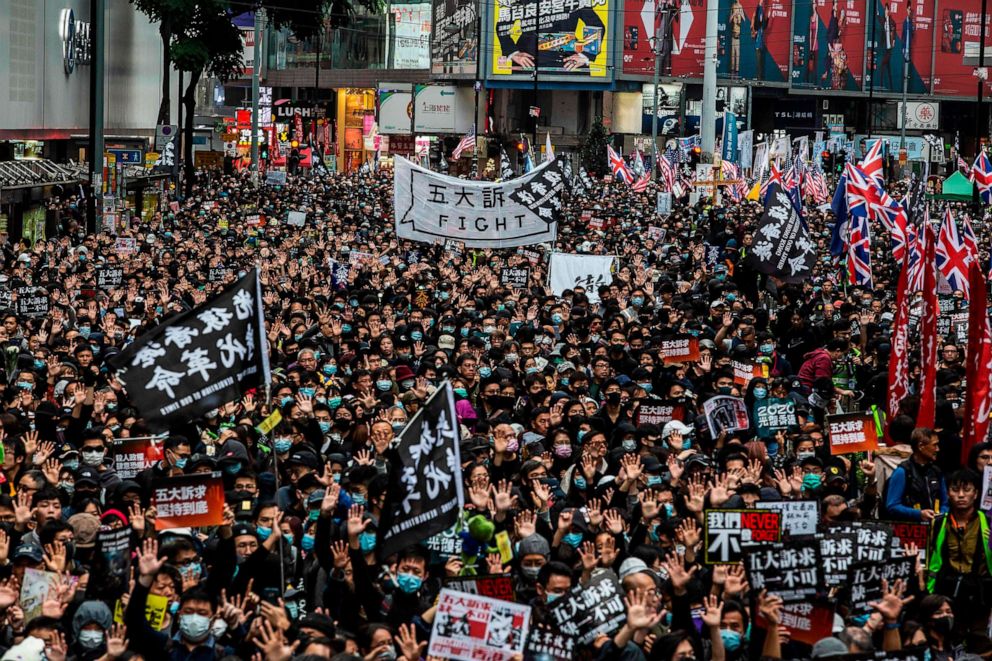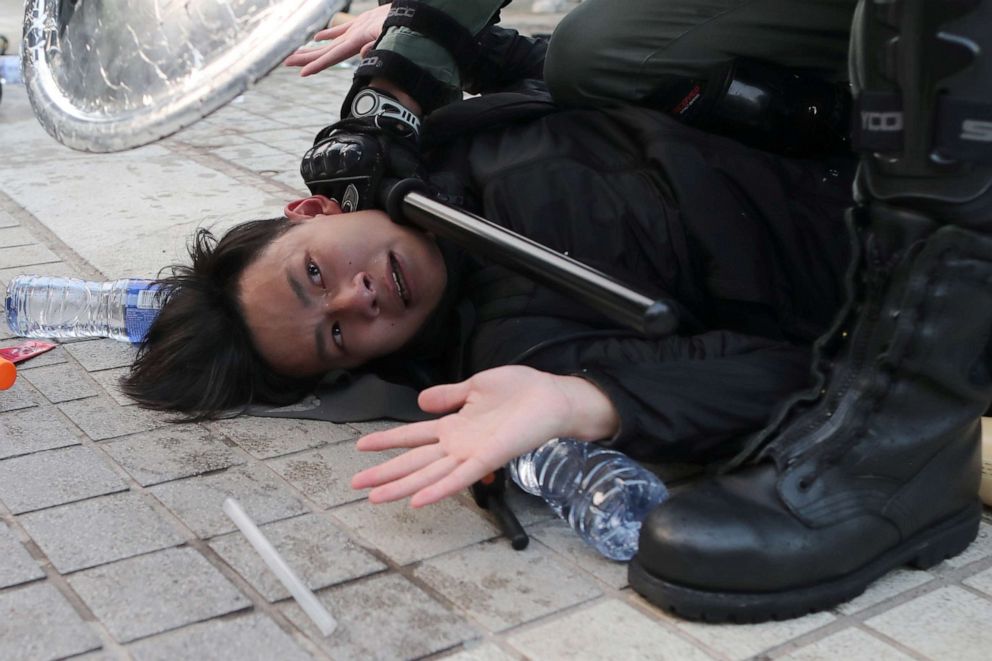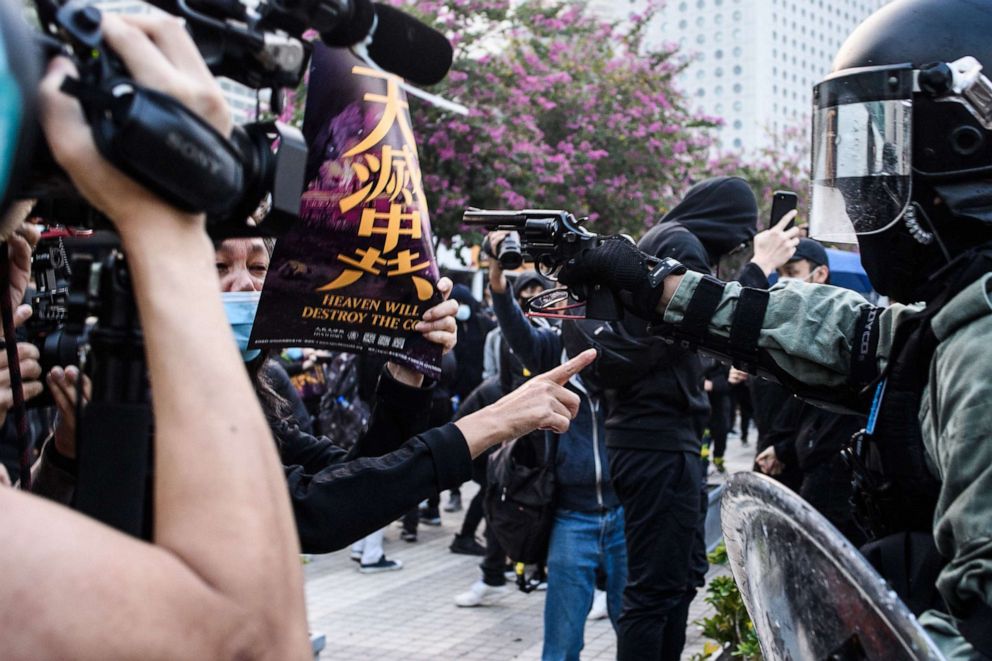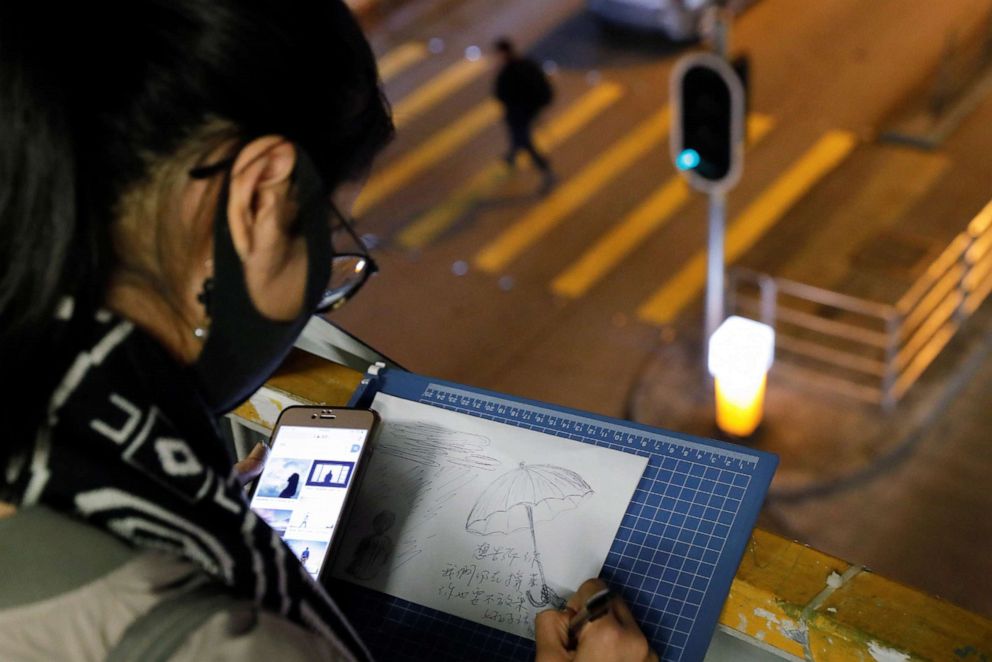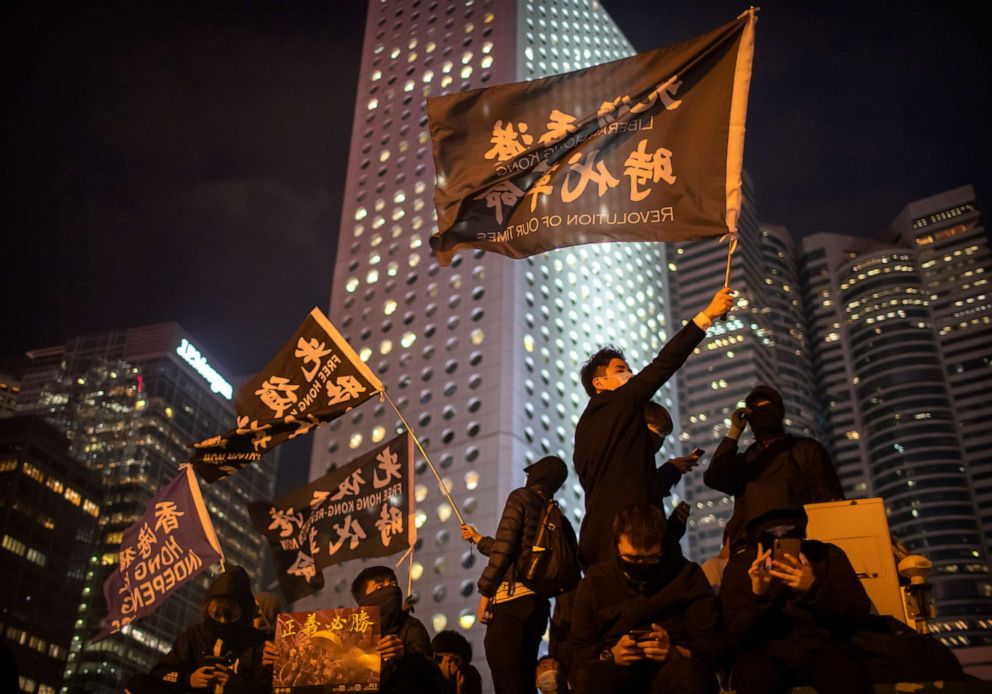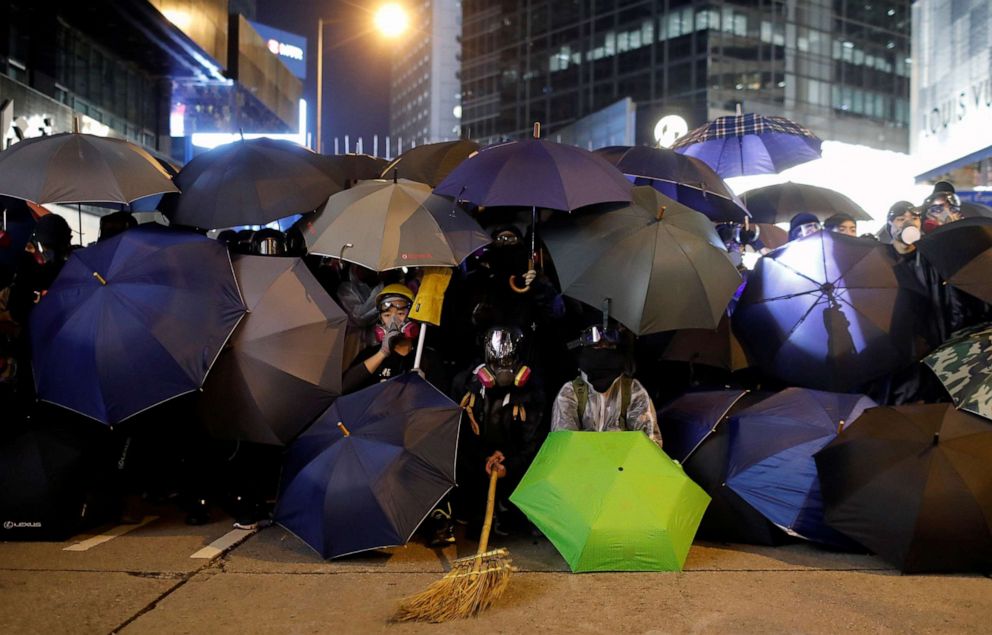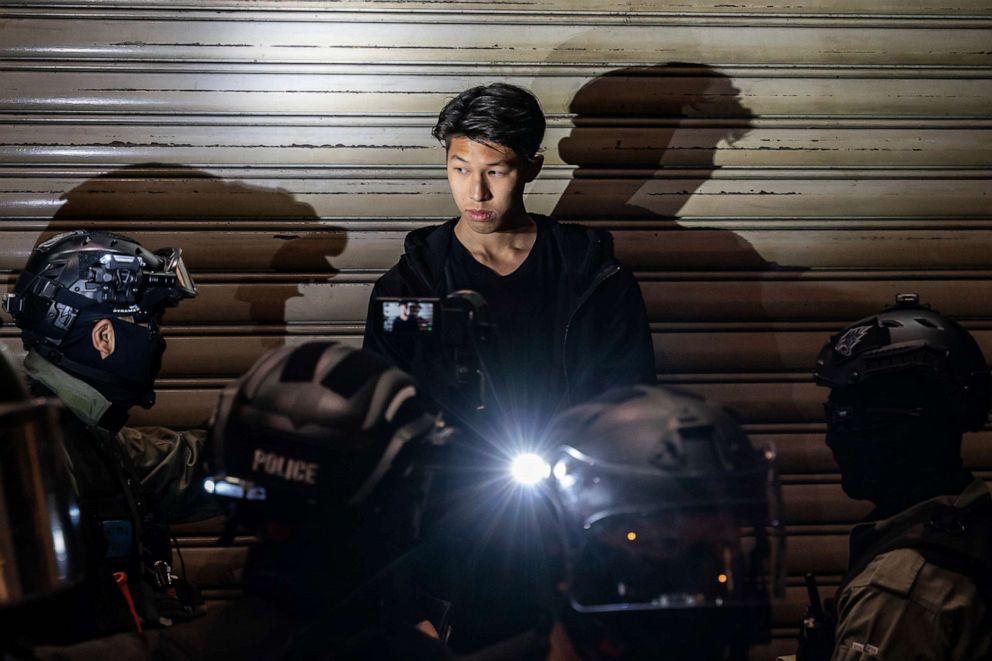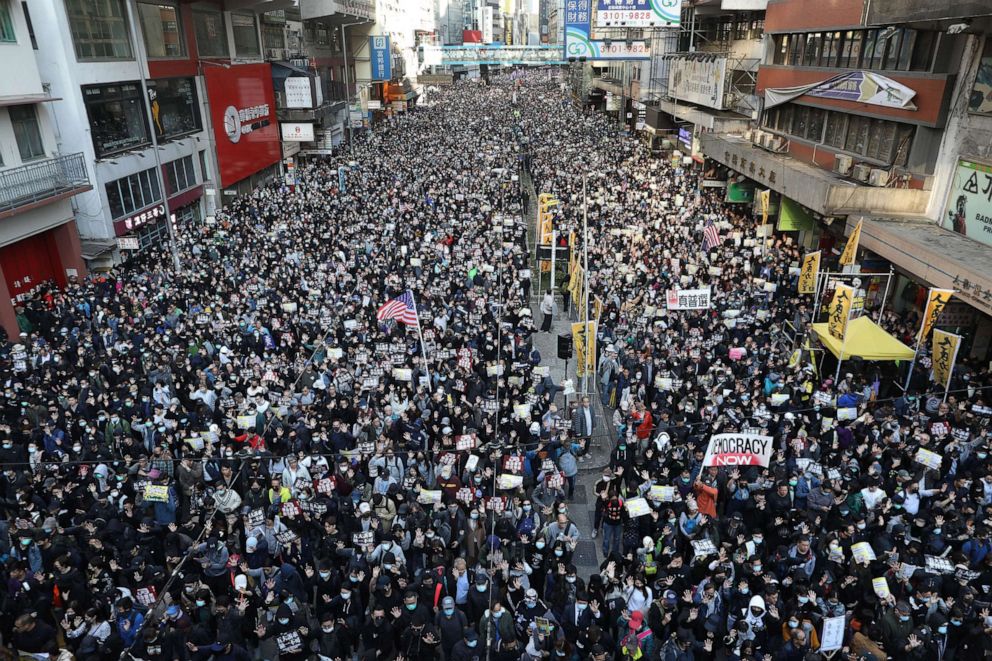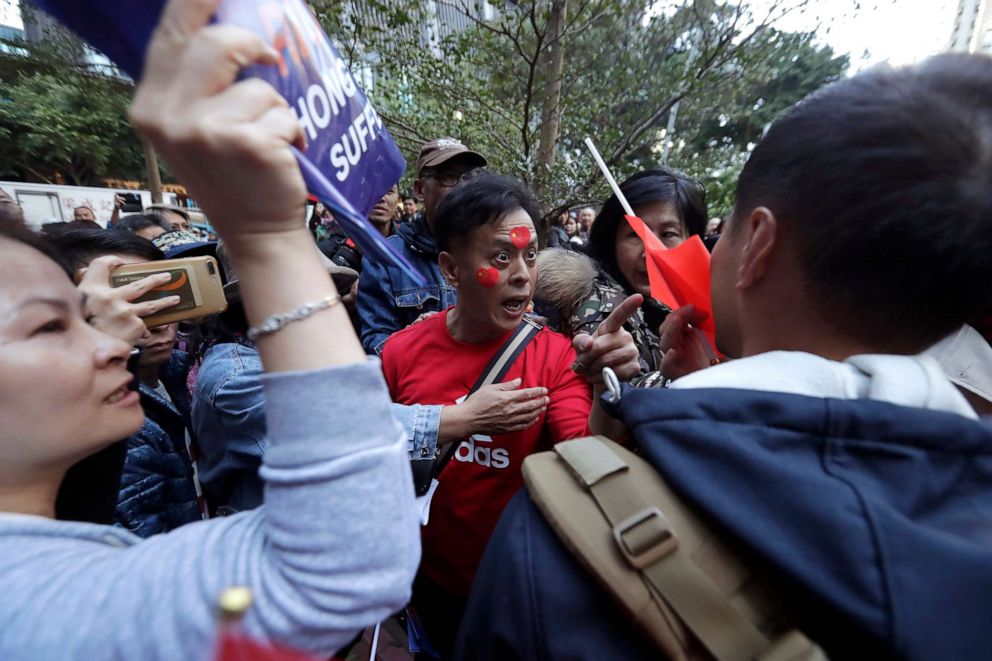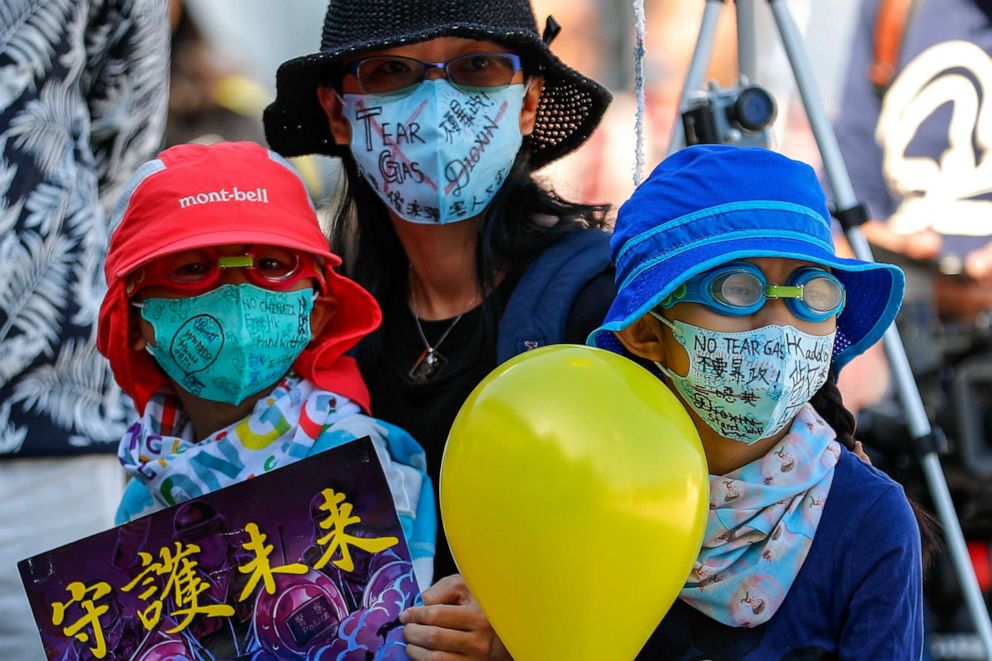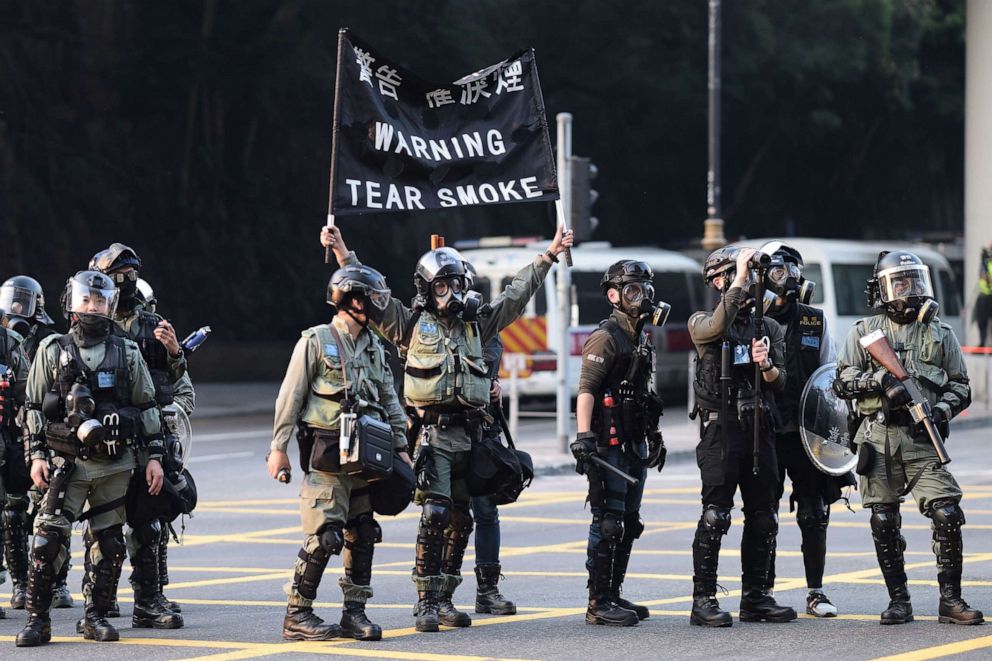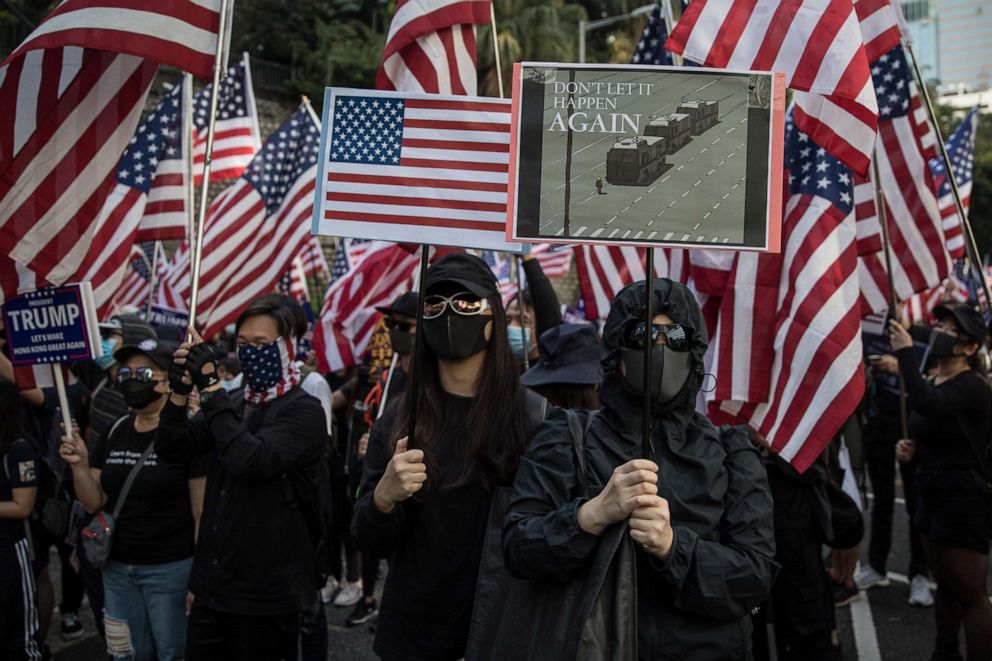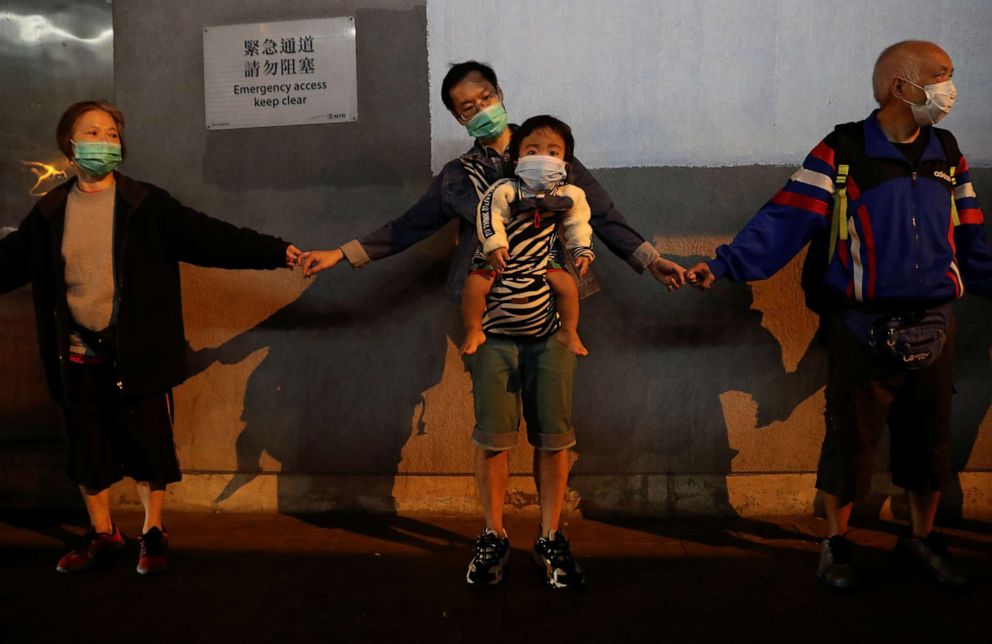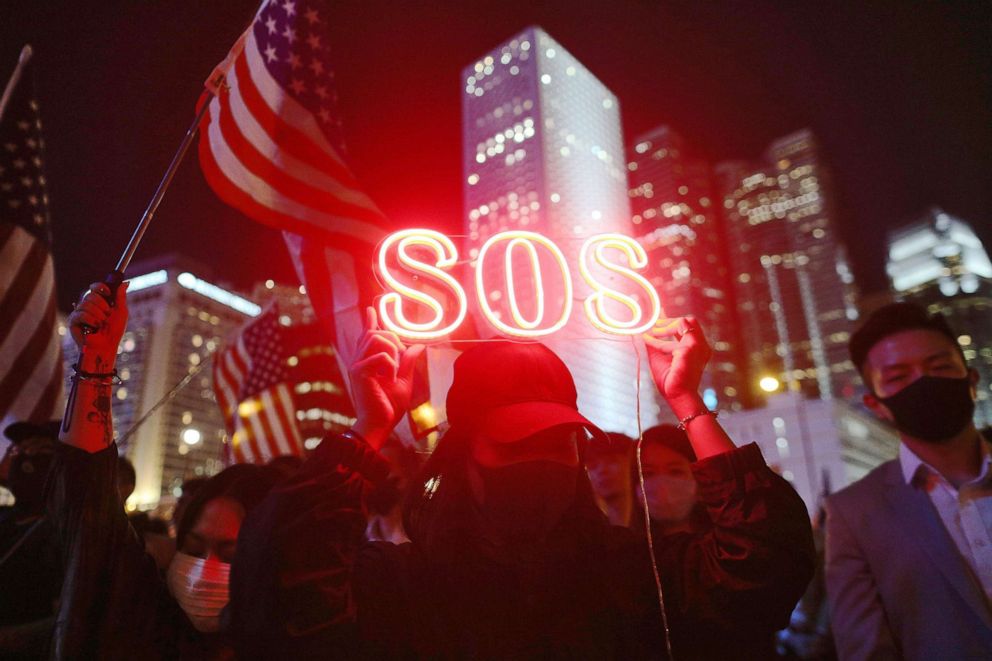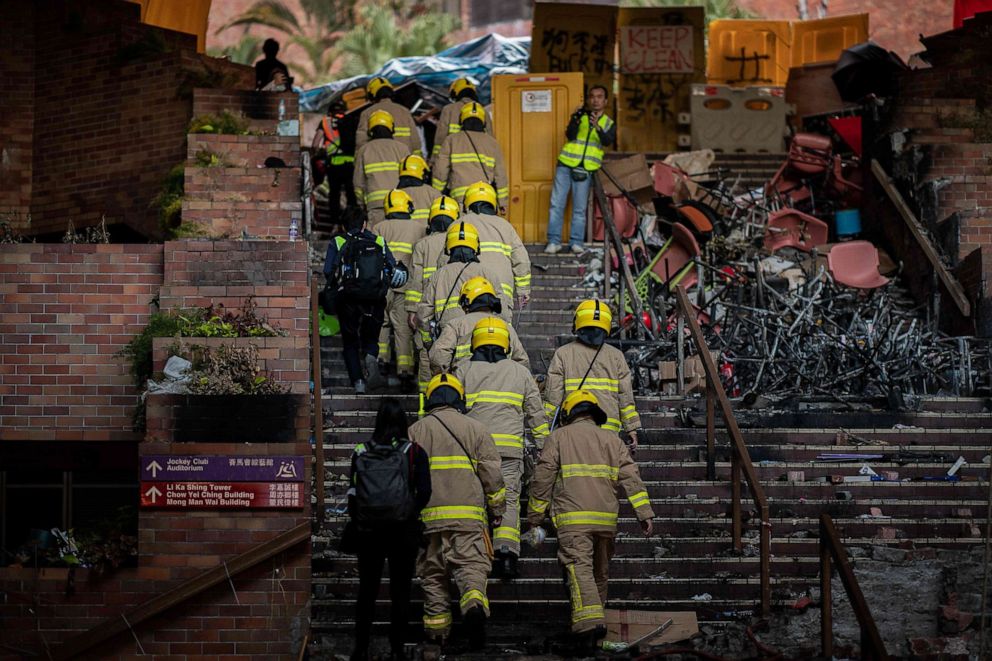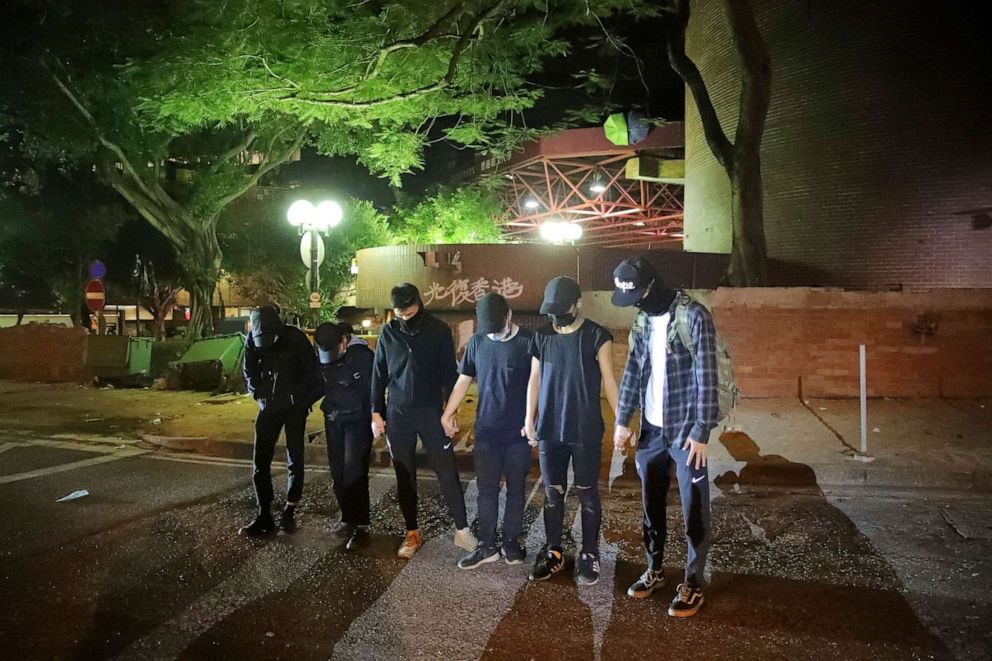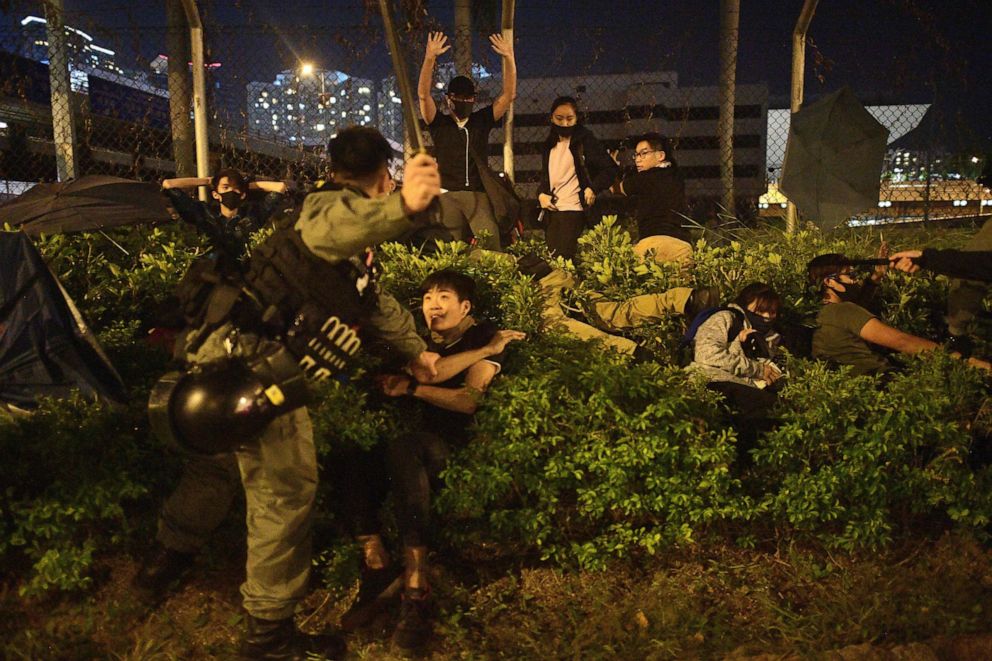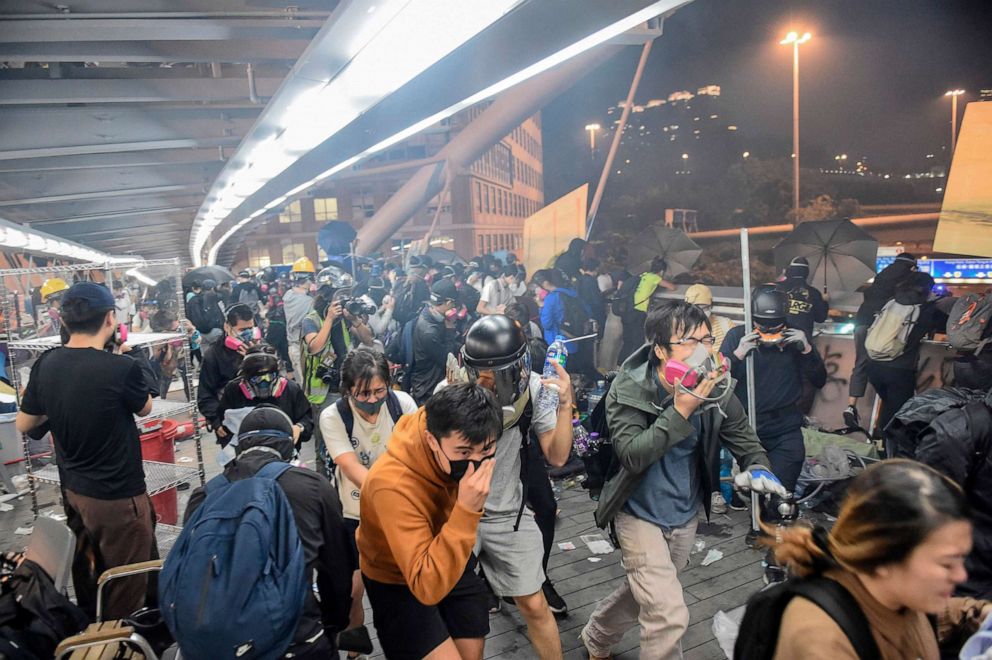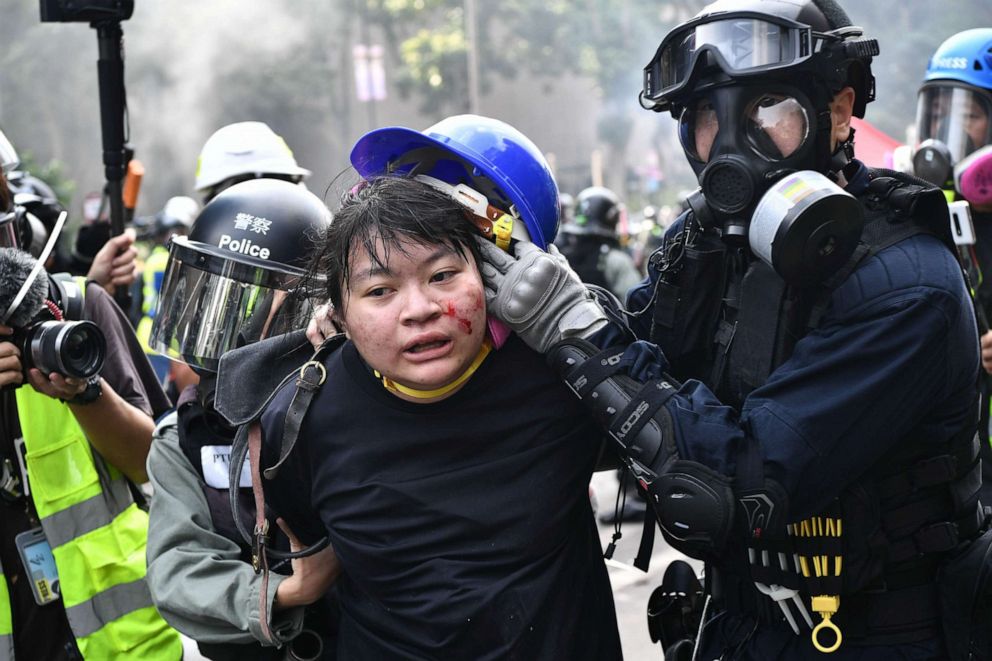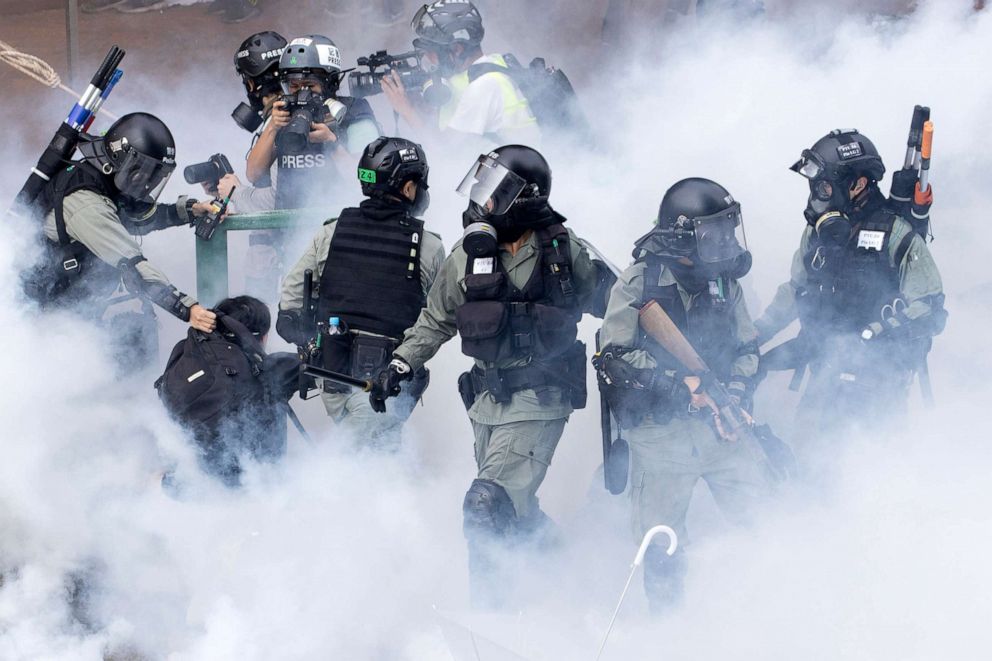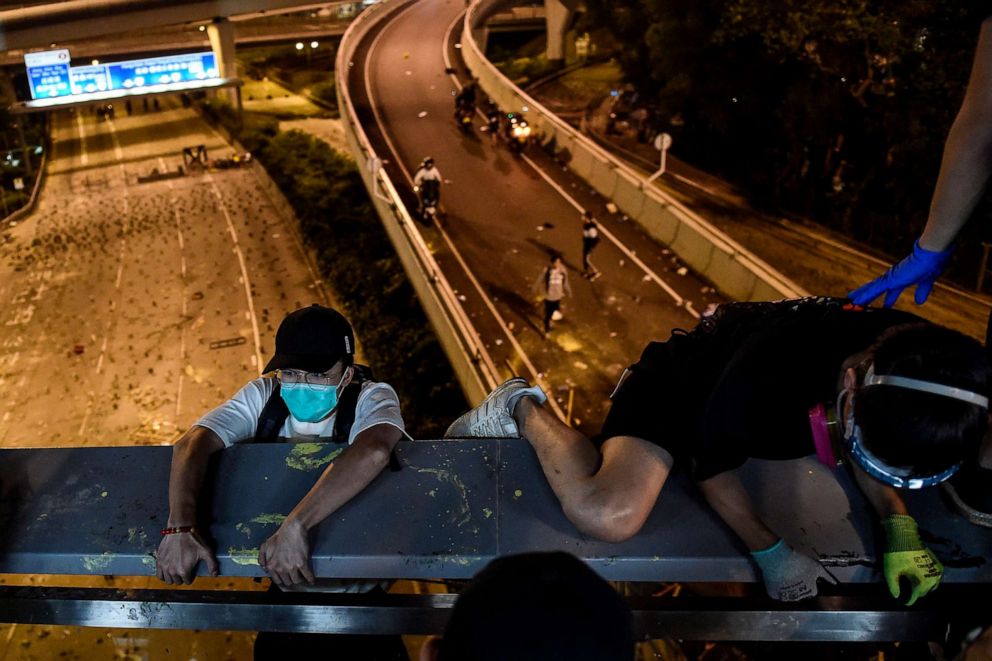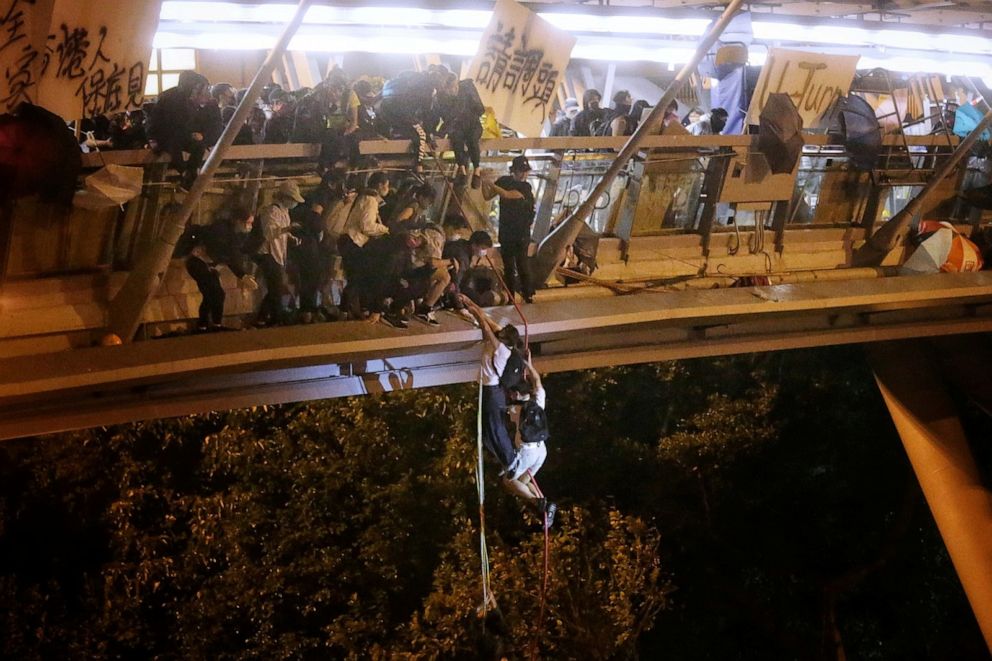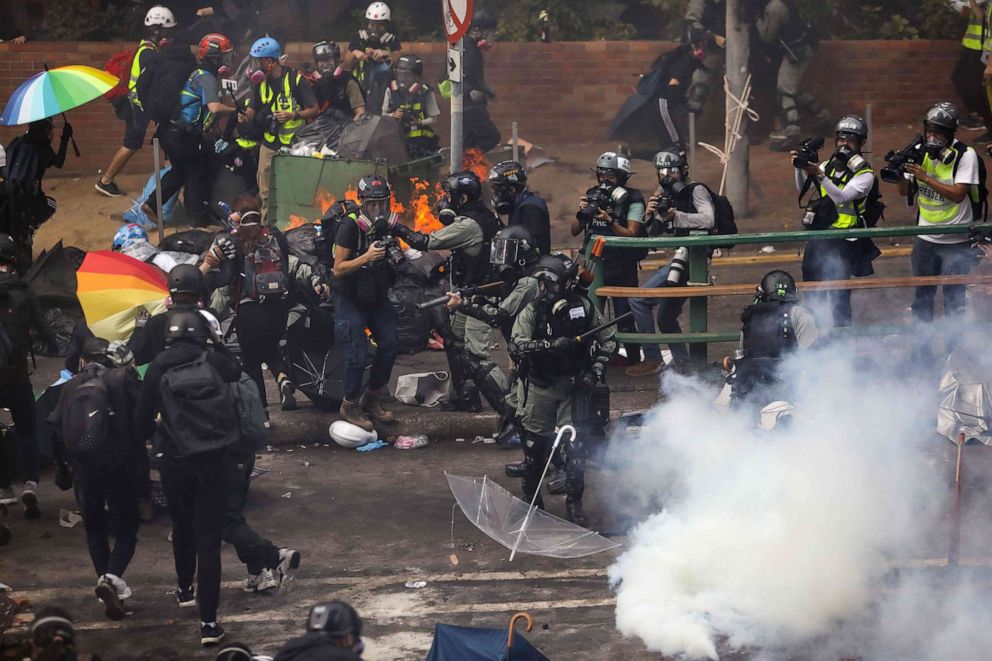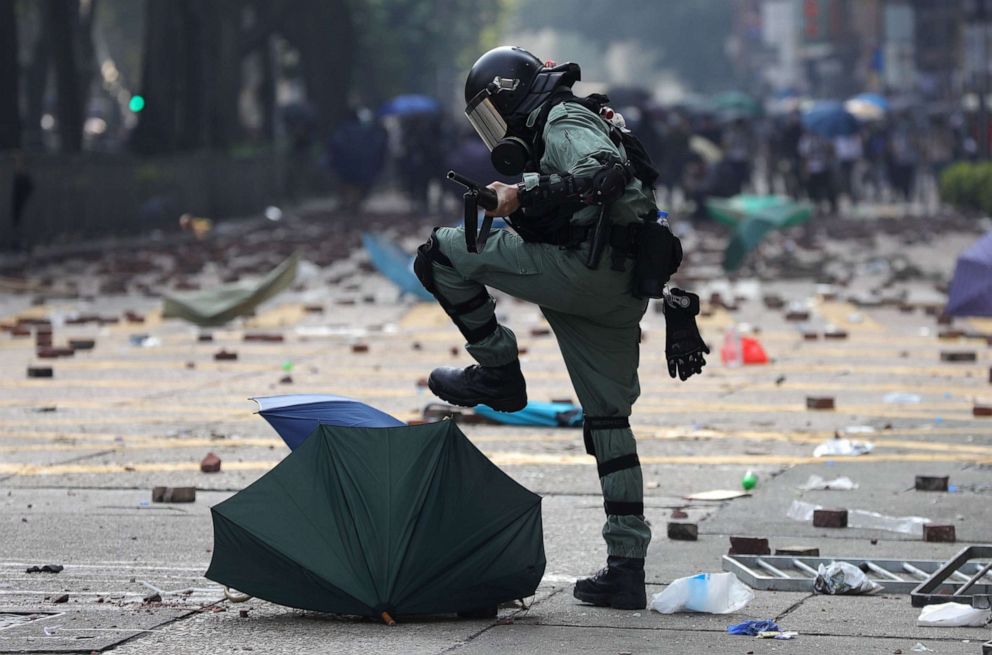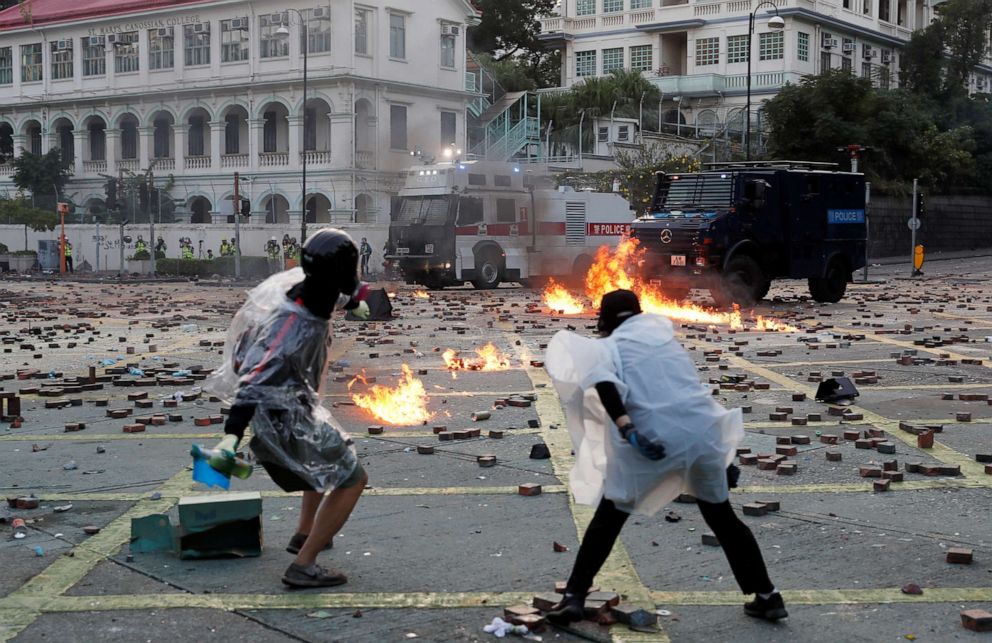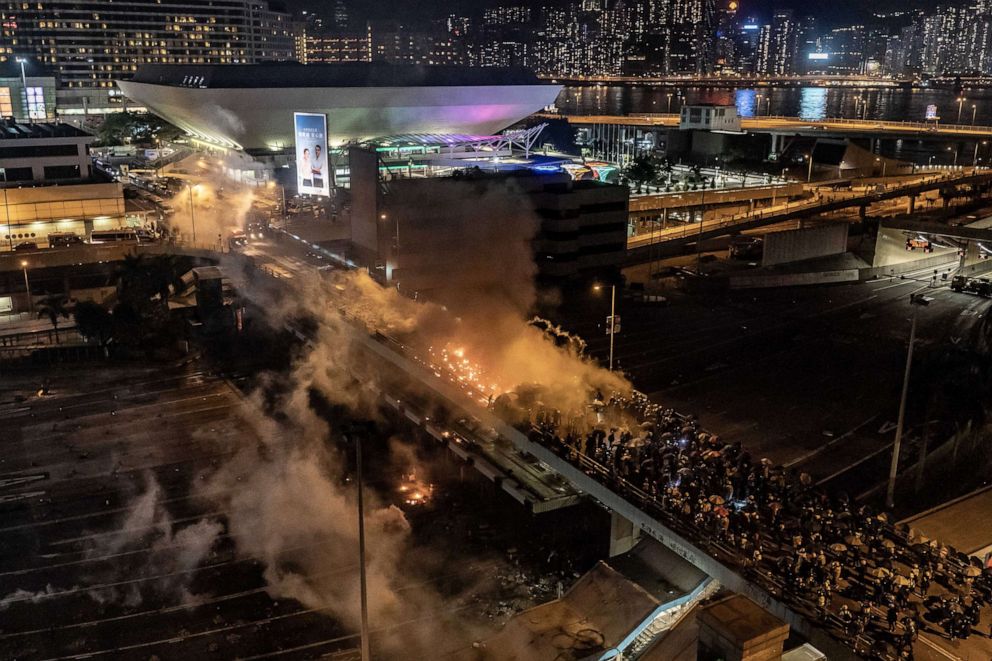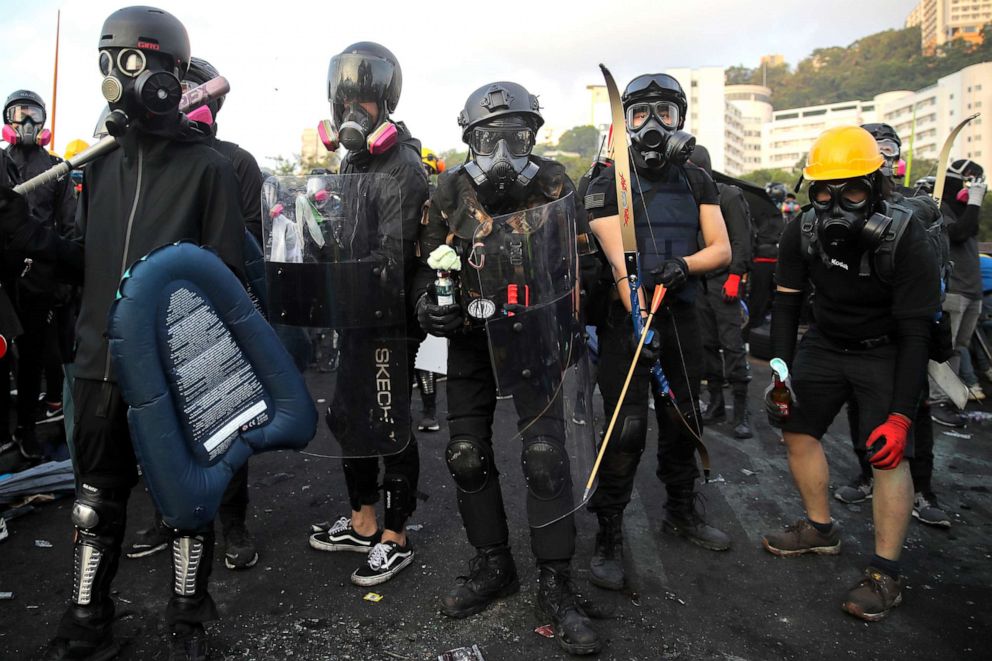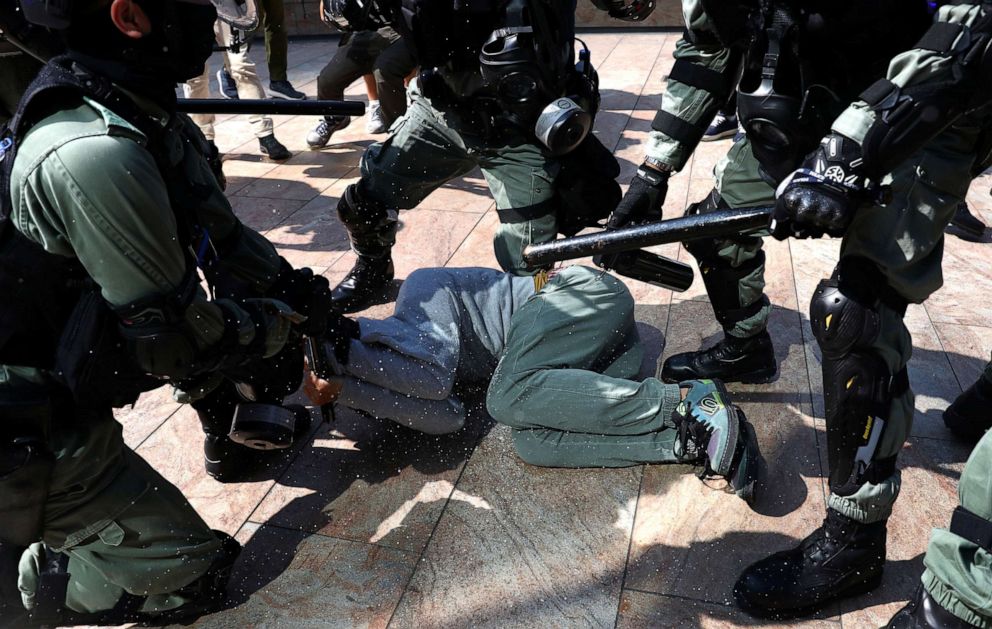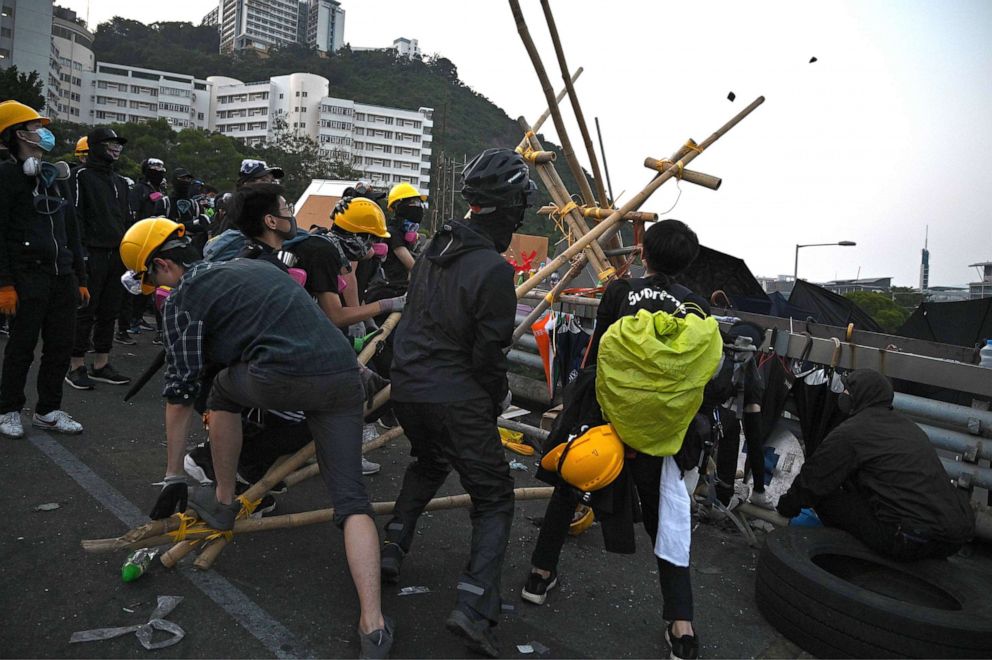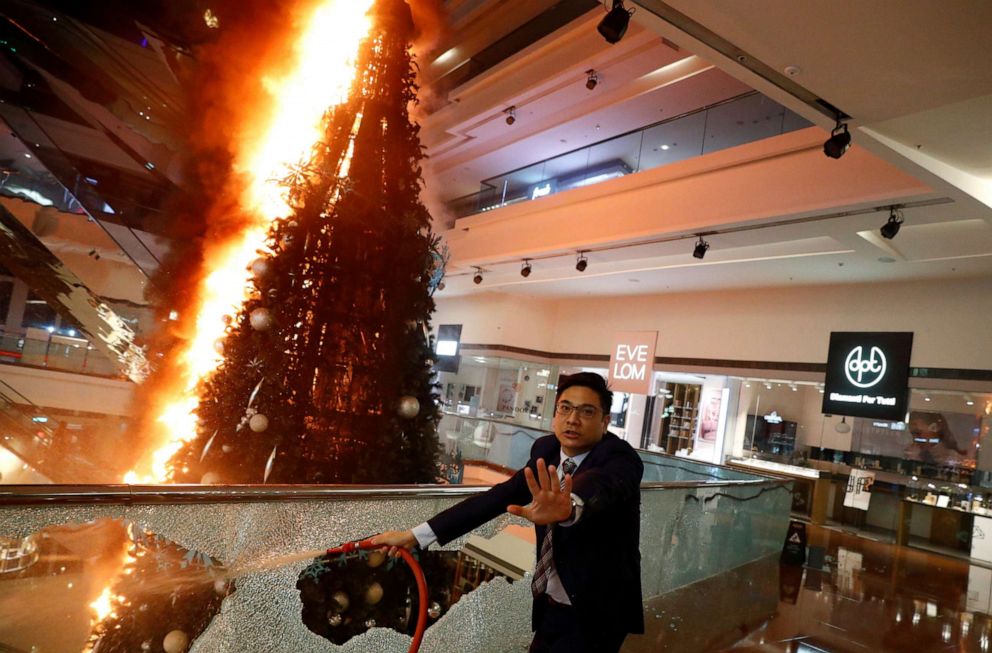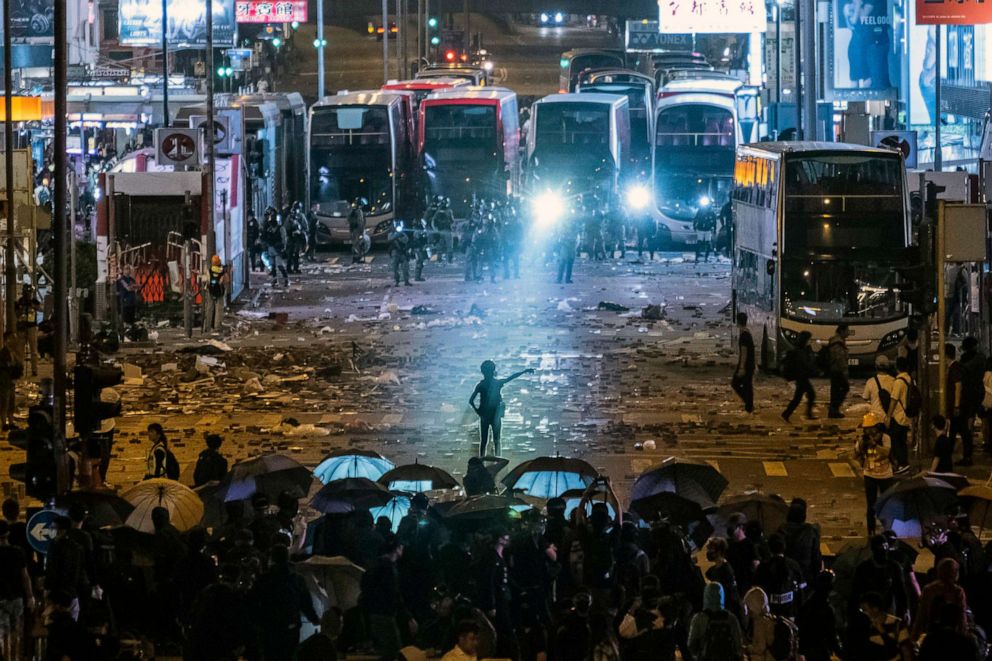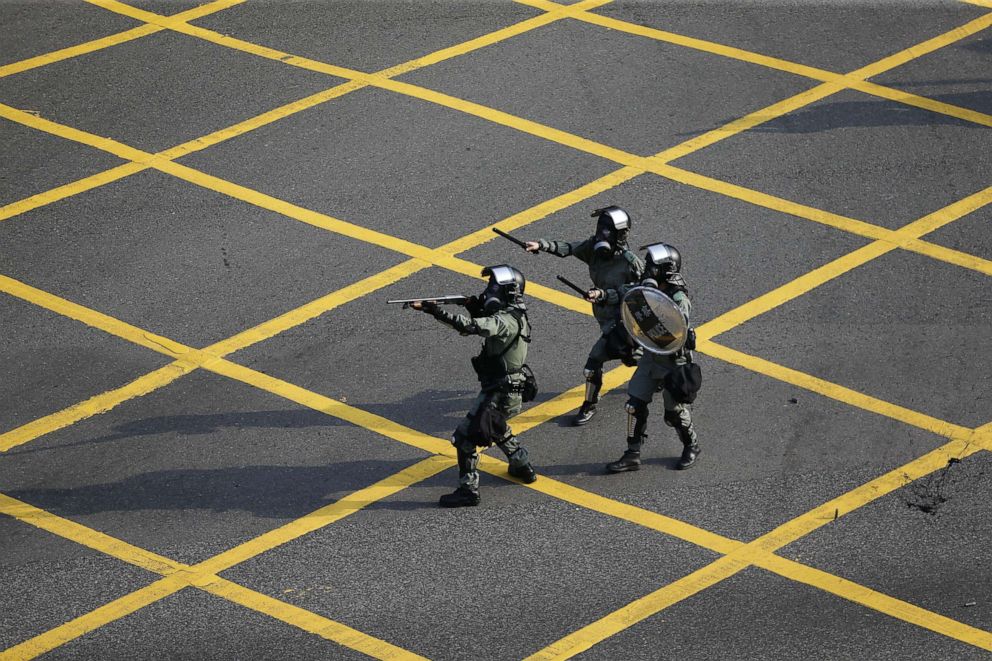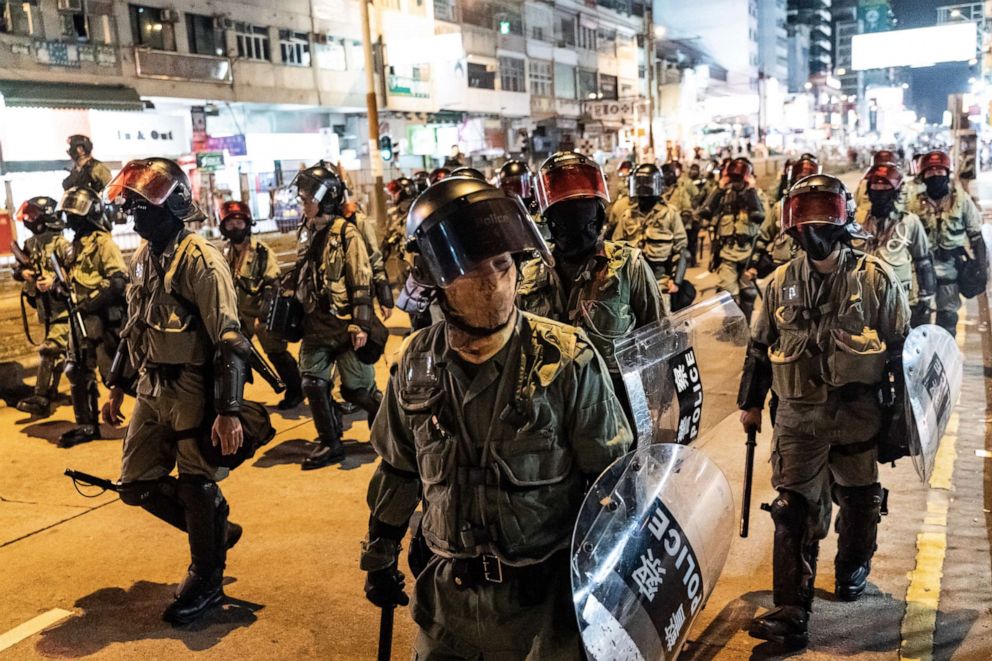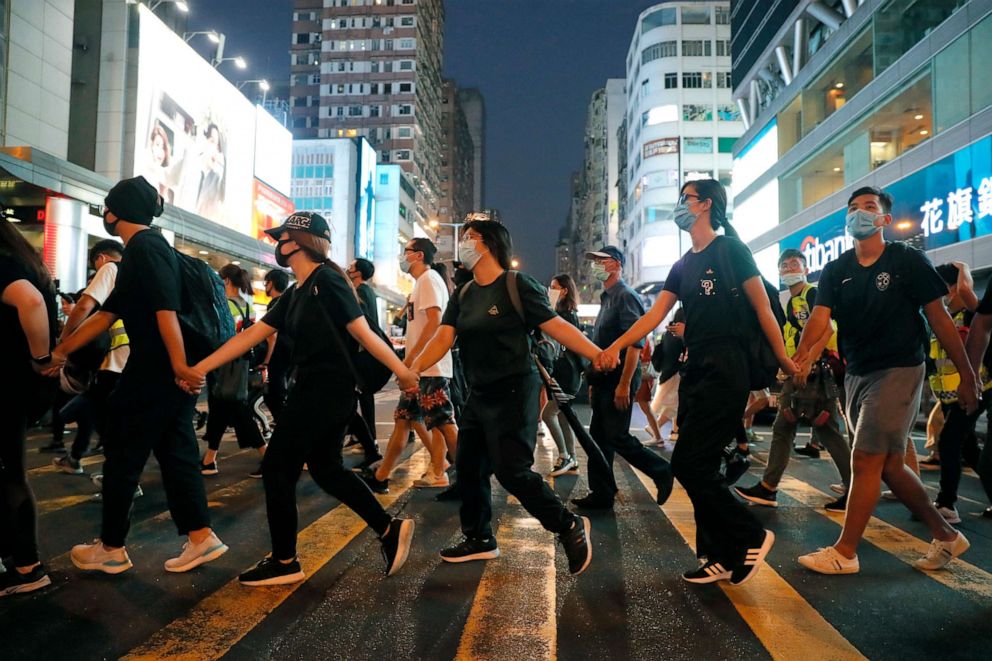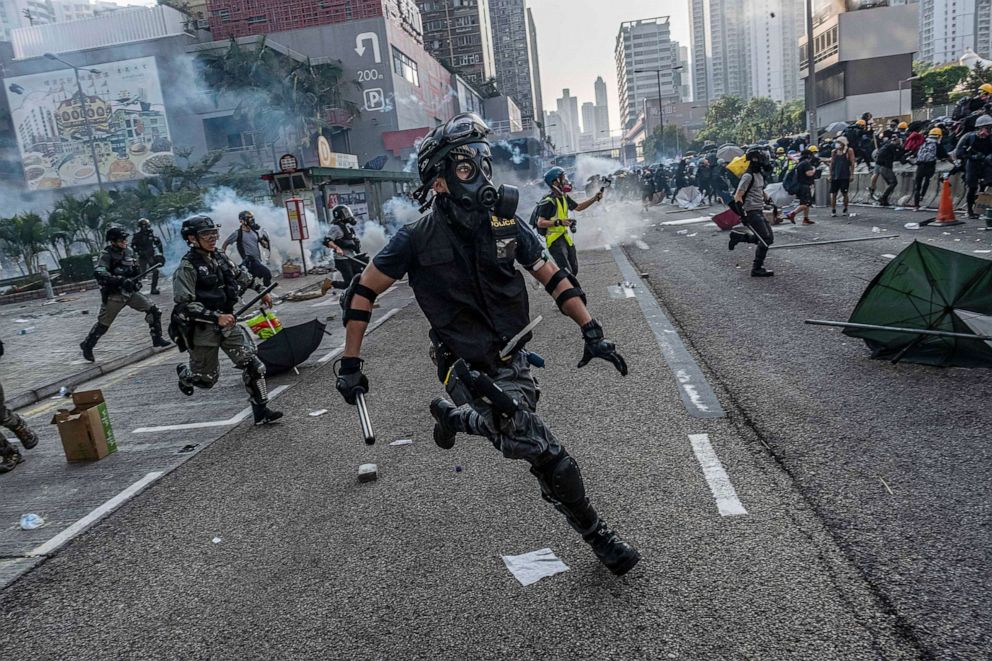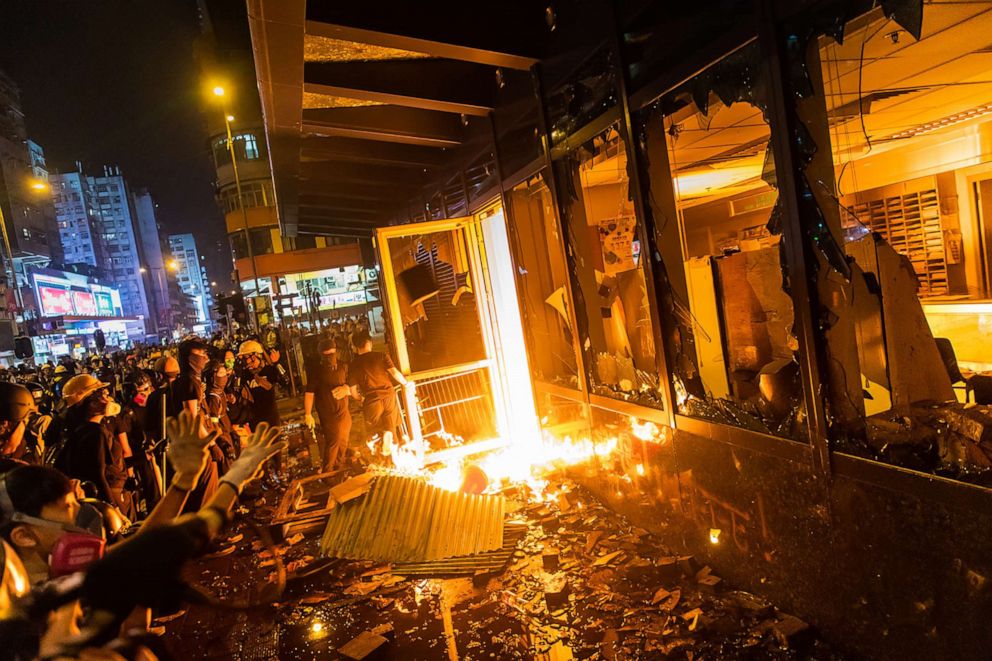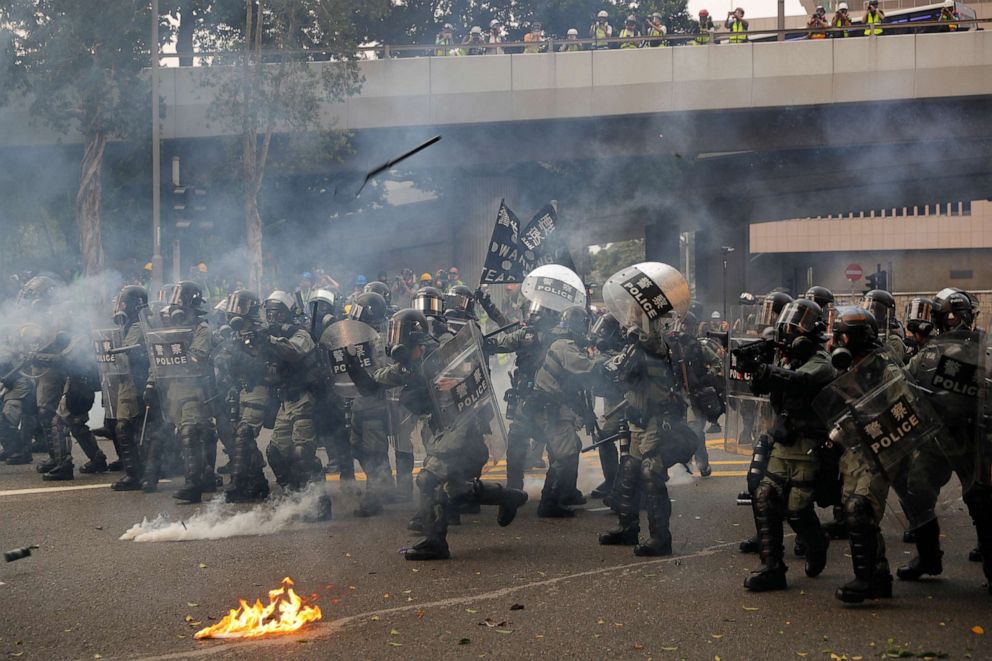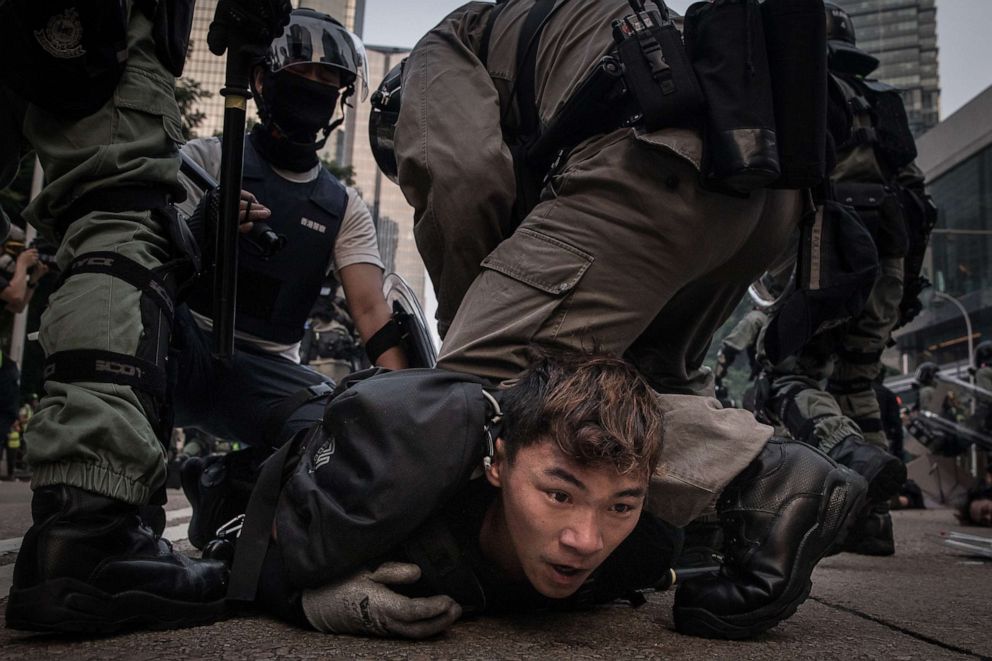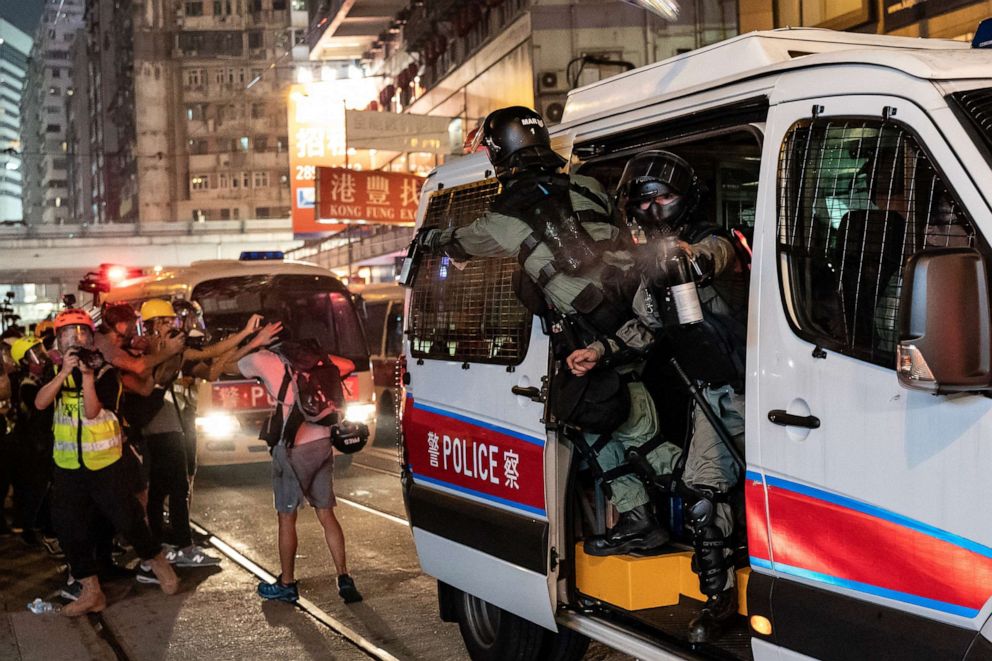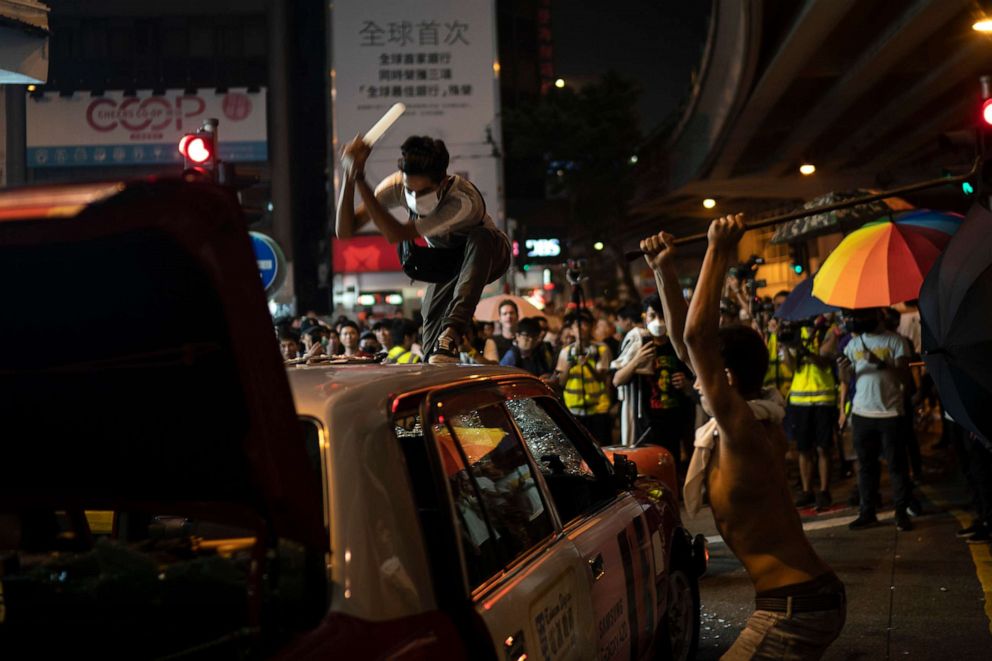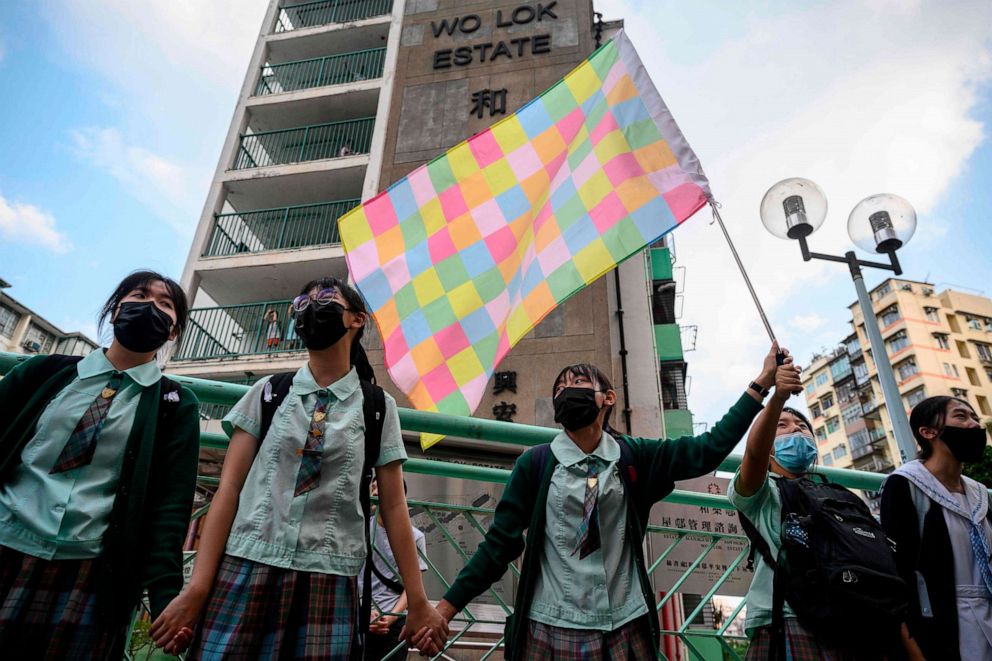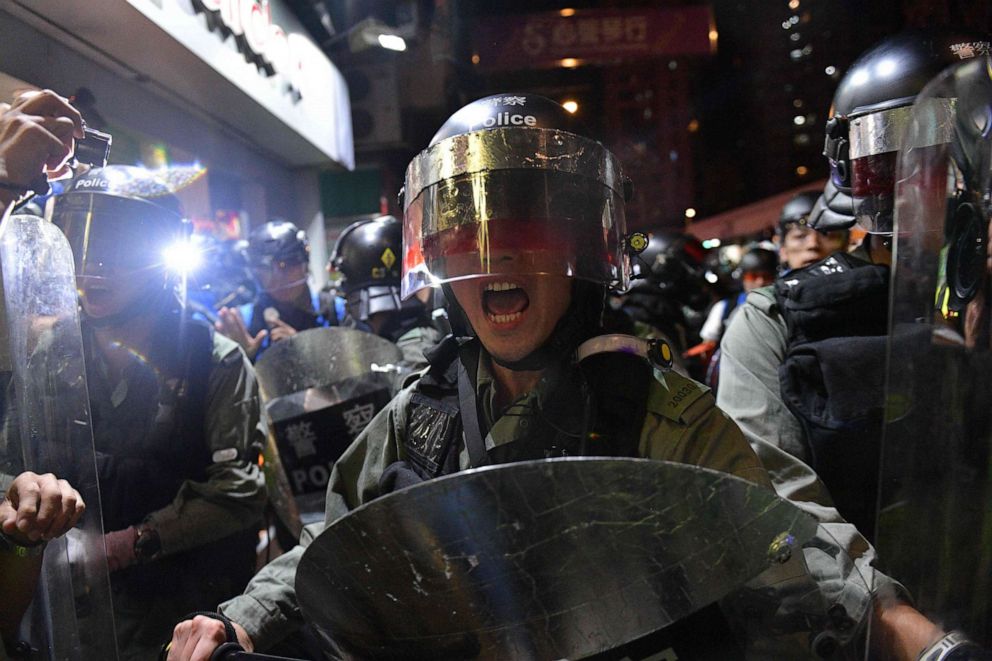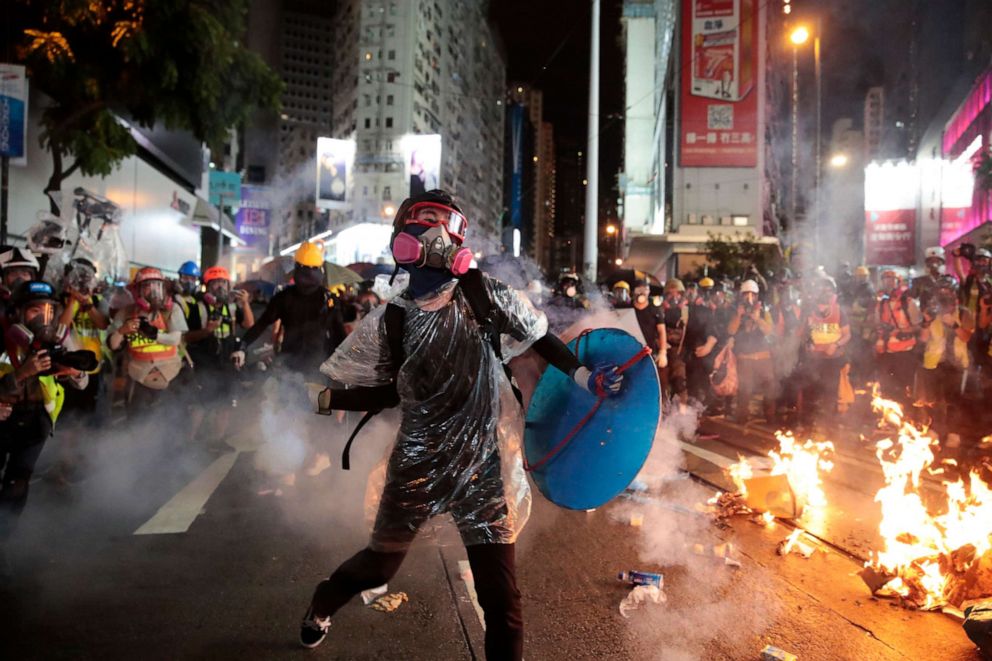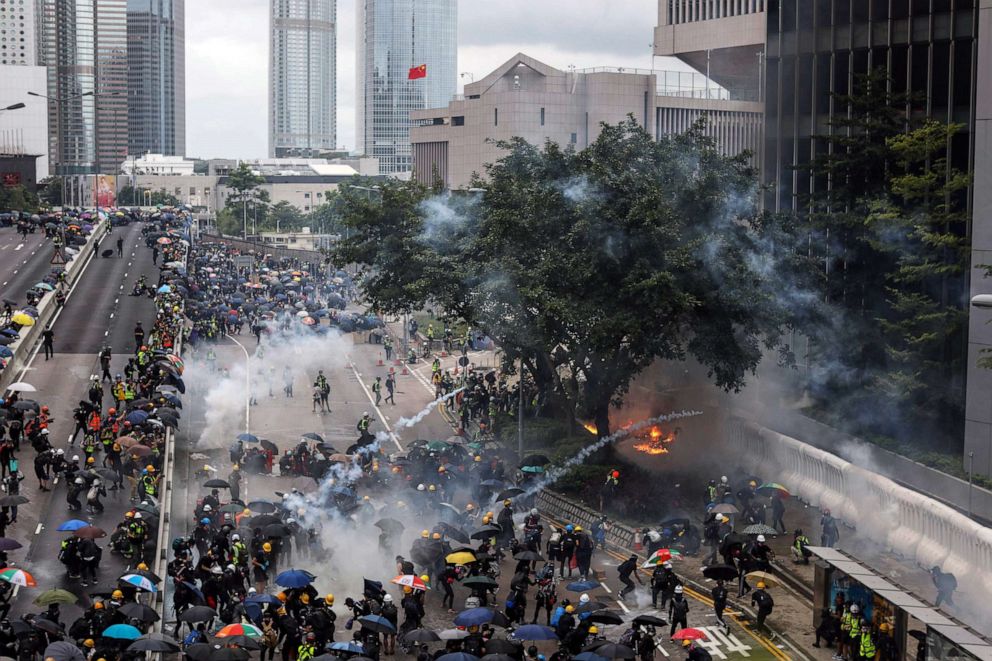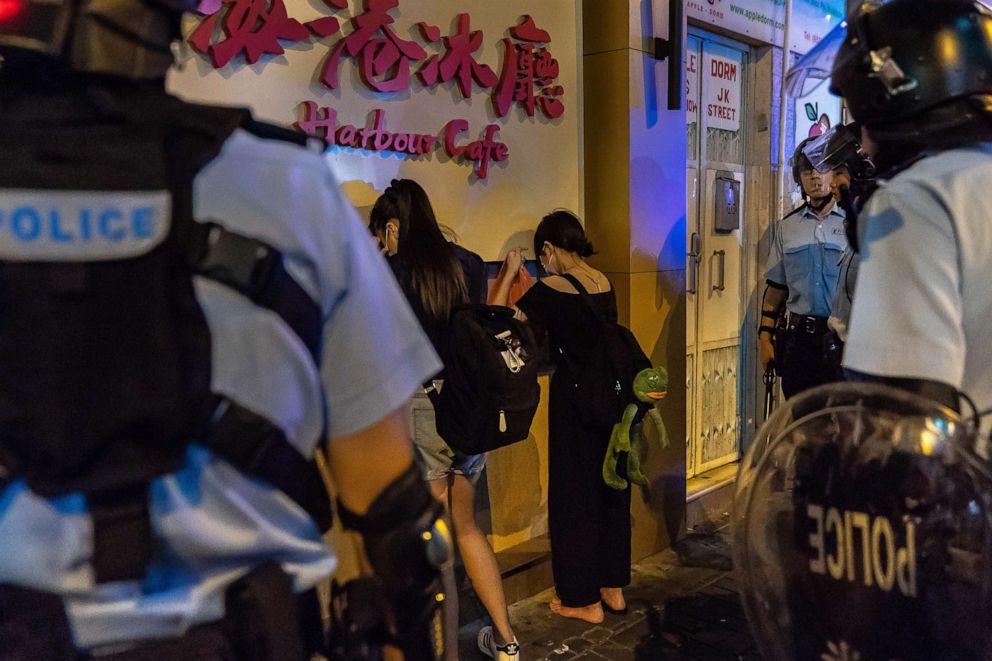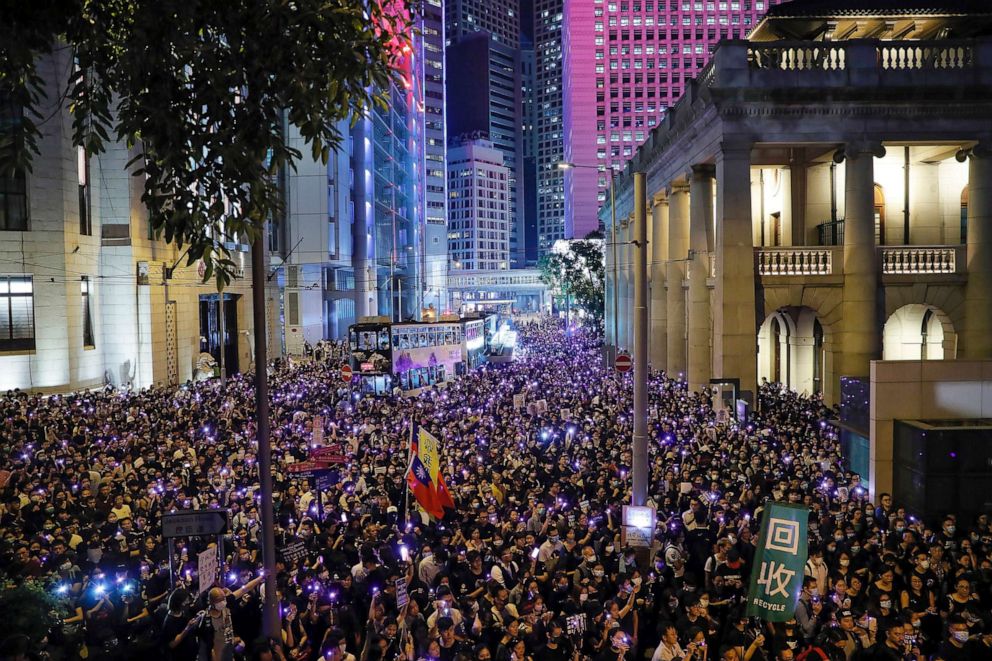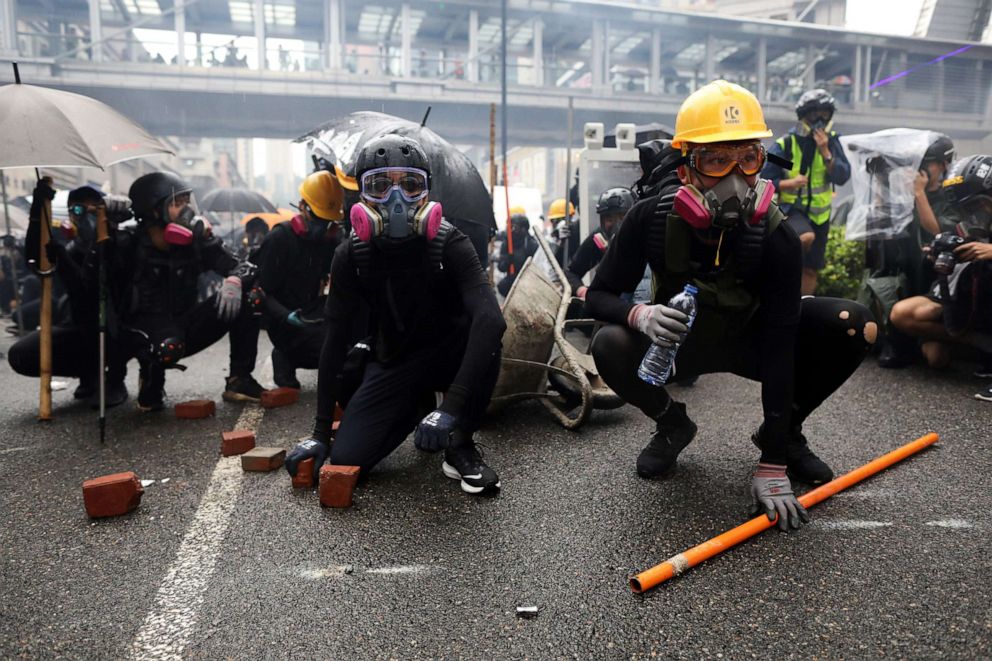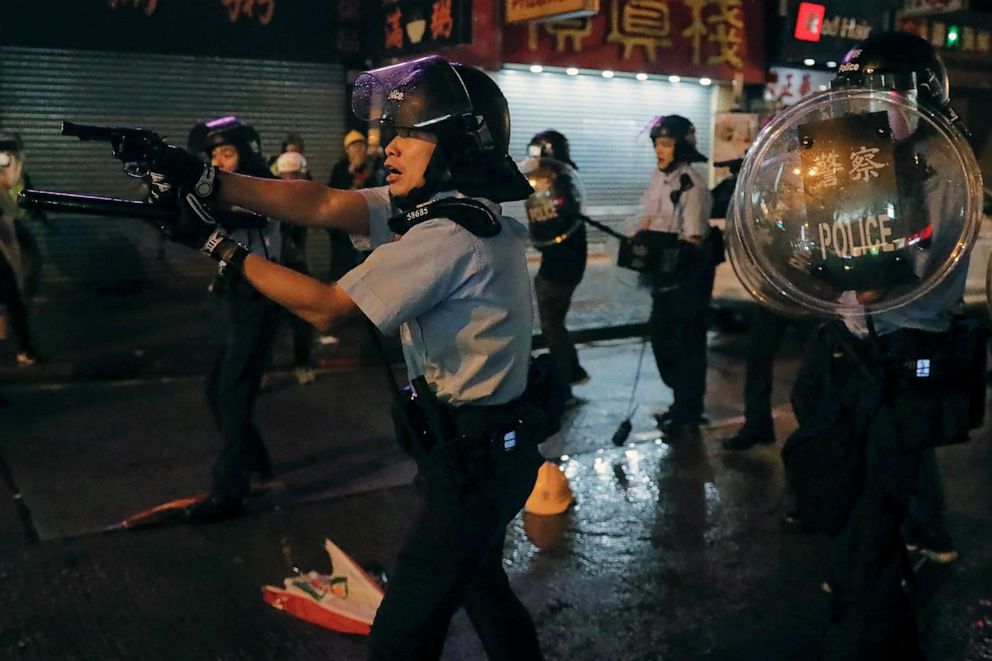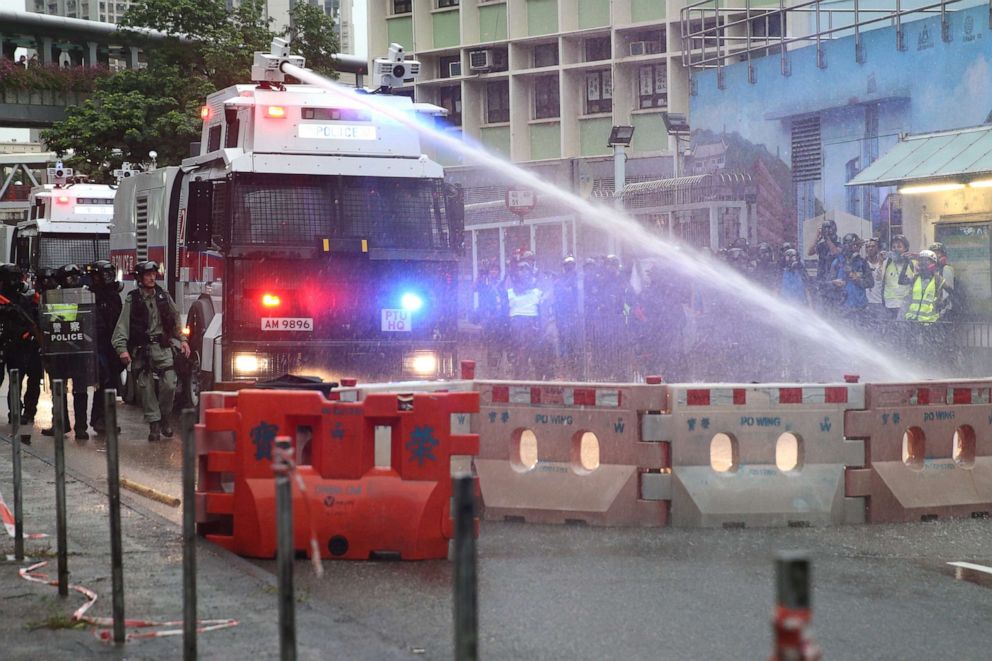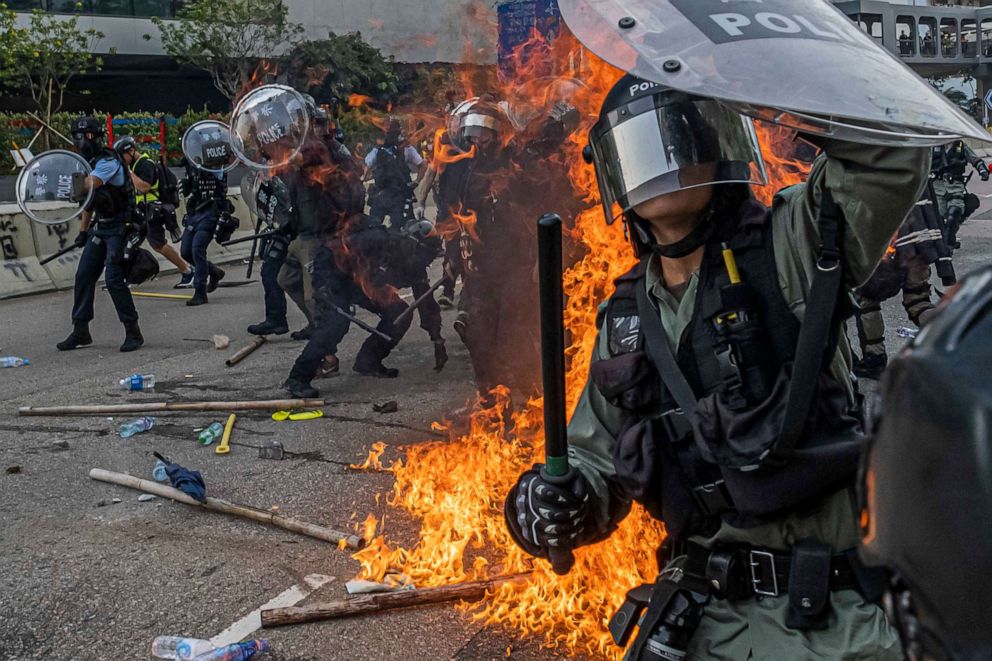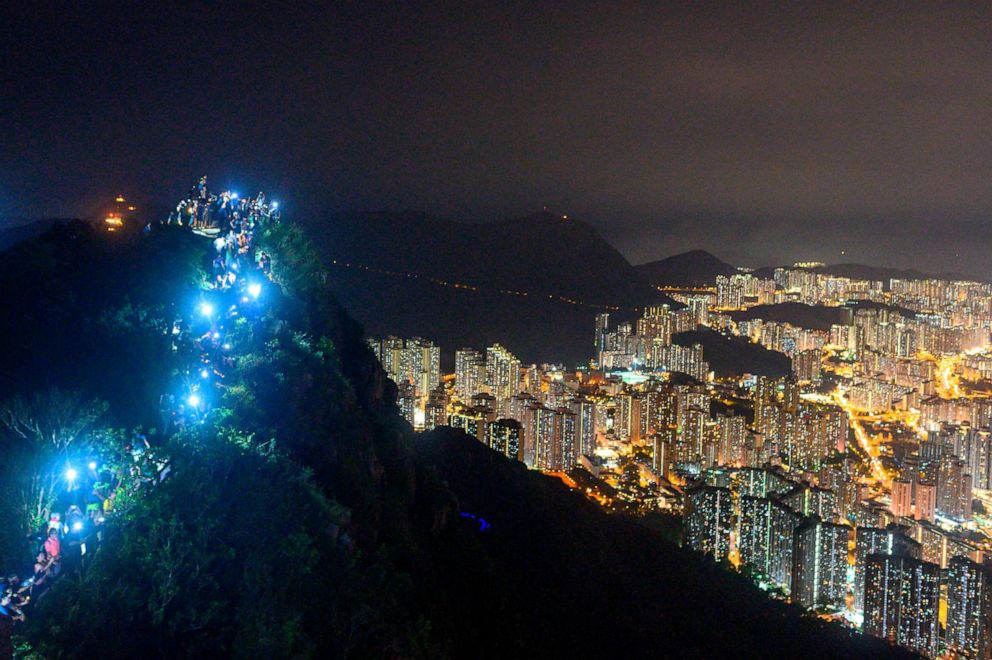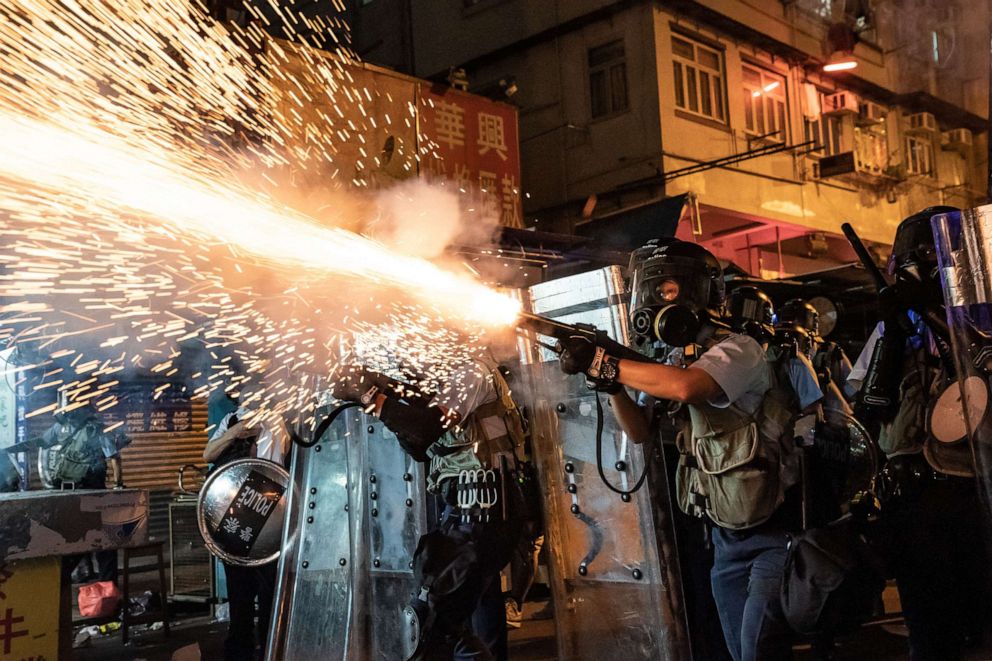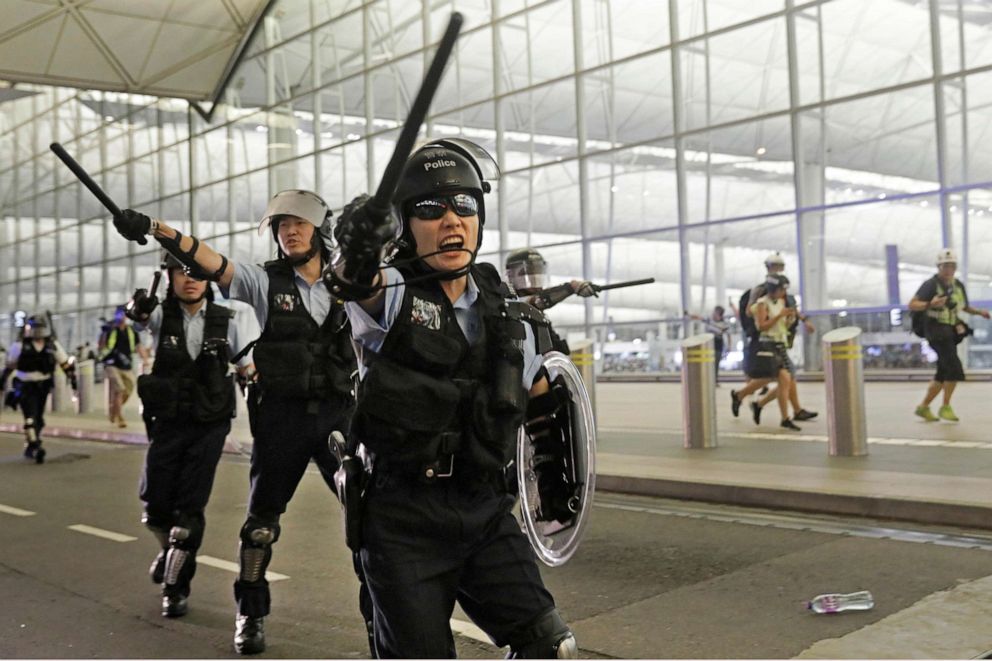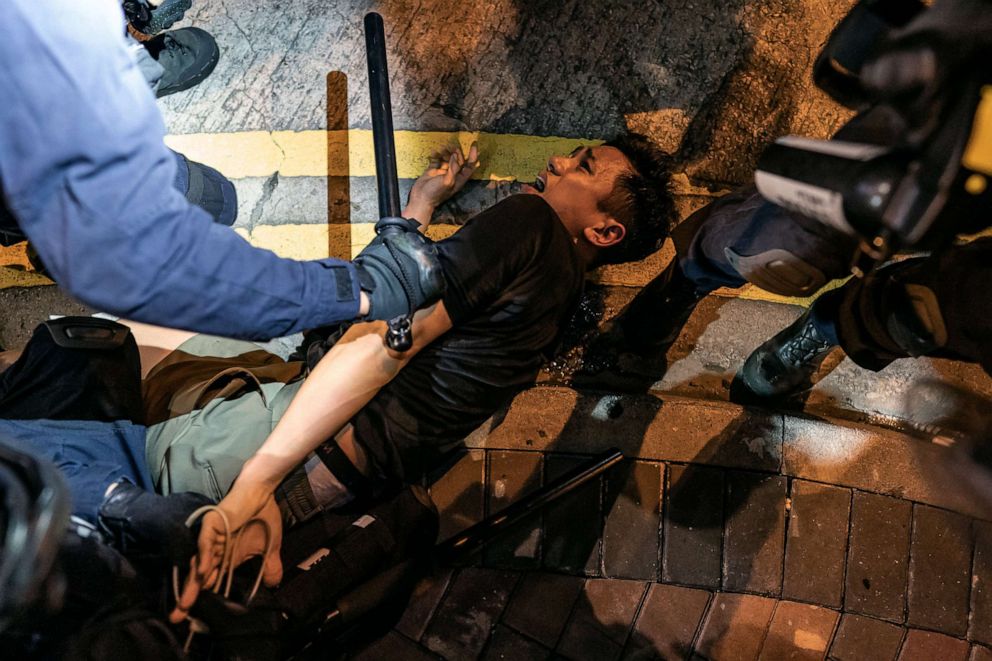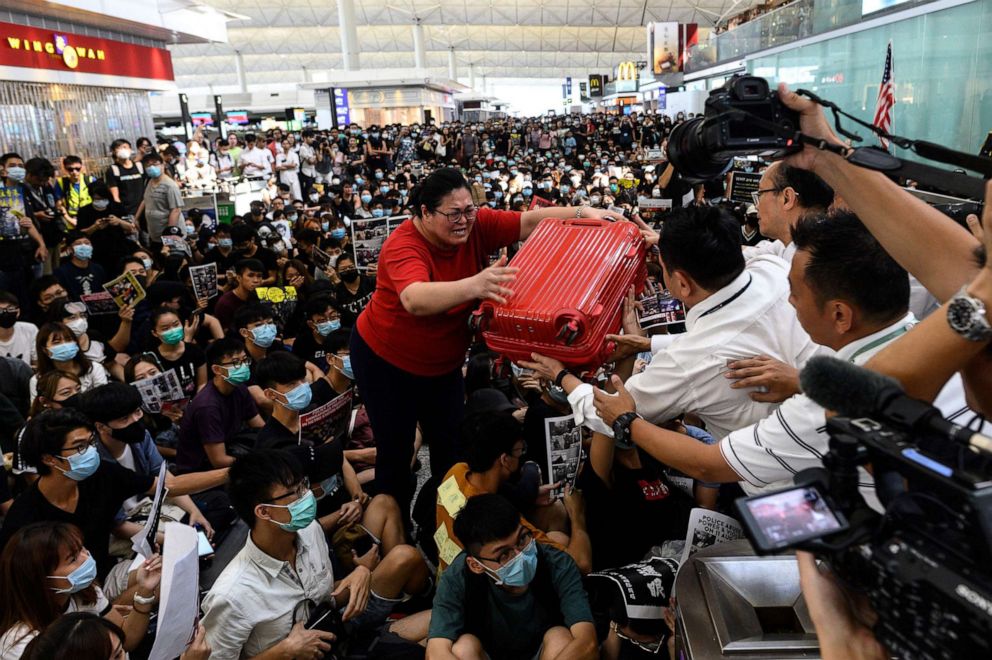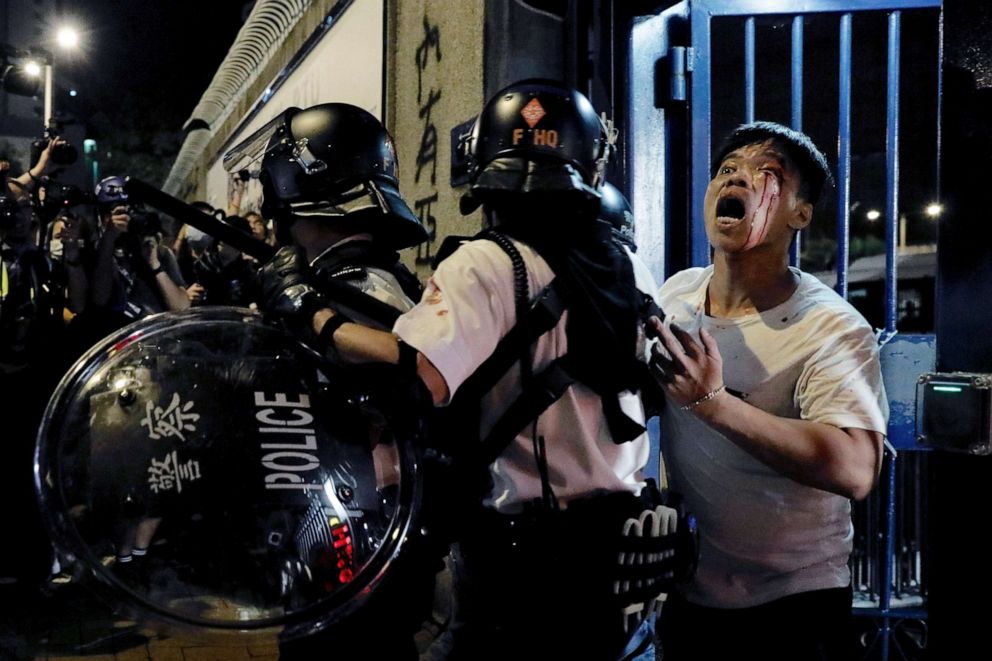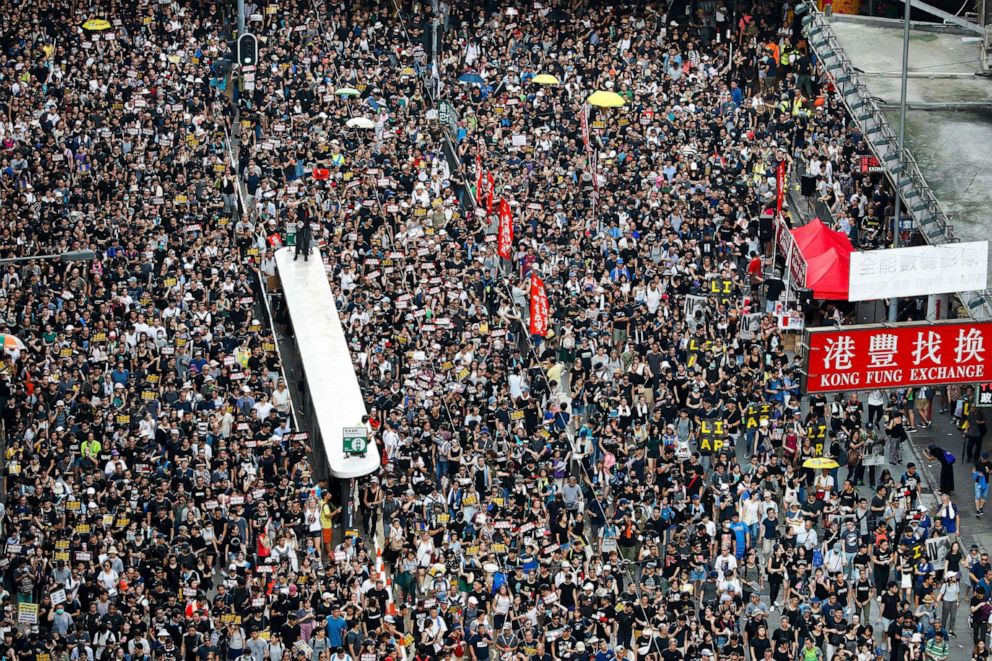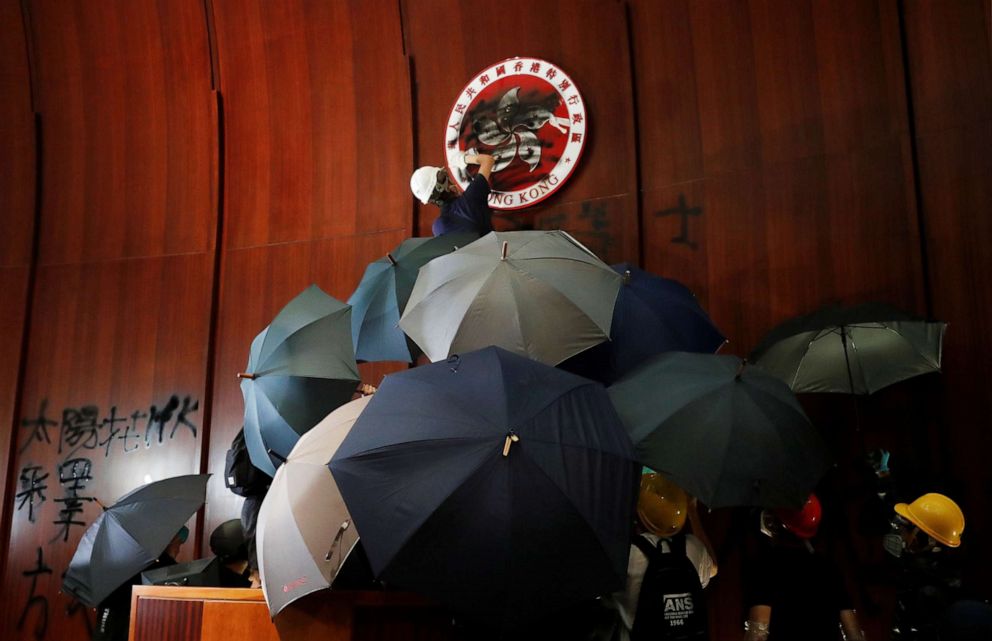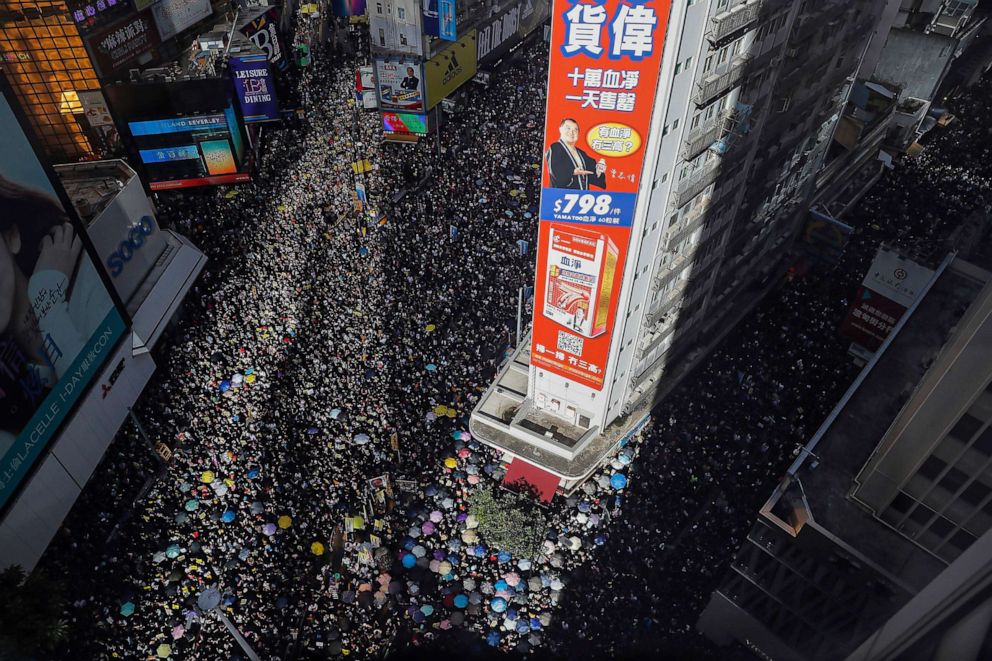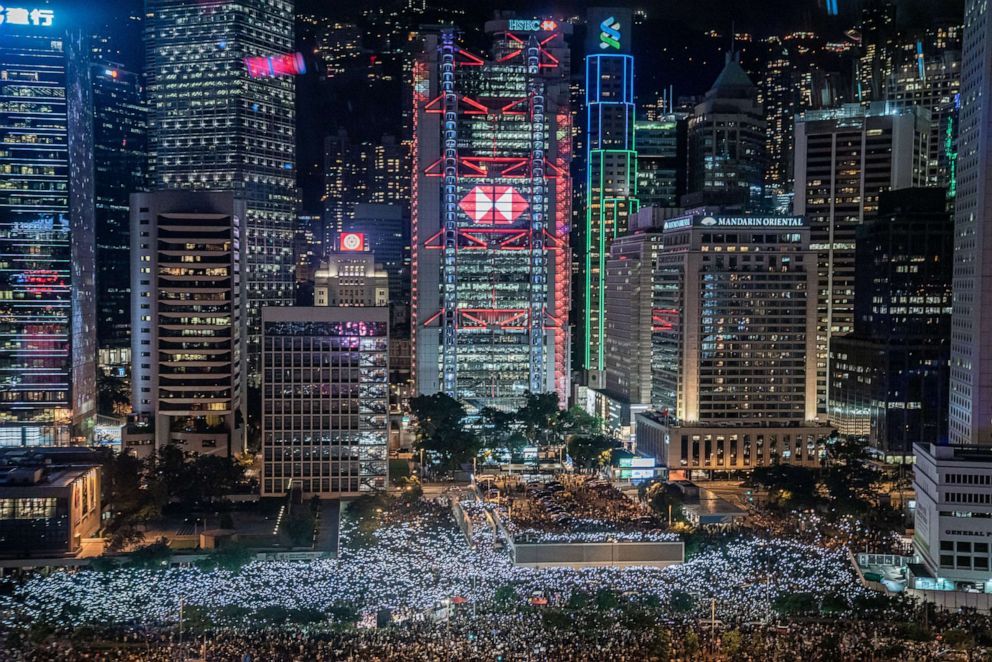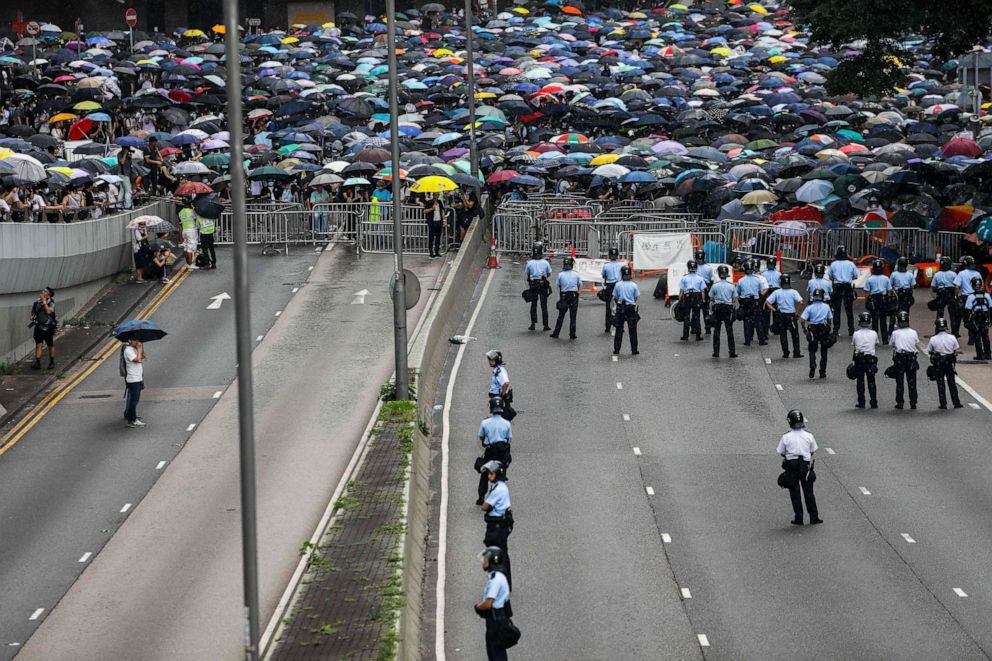How tech has fueled a 'leaderless protest' in Hong Kong
Protesters on navigating a world of online anonymity, encrypted apps and more.
Residents of Hong Kong have convened on the streets in masses for months, demonstrating against Beijing's dominance in the semi-autonomous Chinese territory they call home — what sets these uprisings apart from pro-democracy movements in the past, however, is that millions of citizens are armed with a stockpile of tech resources.
While pro-democracy protests have flared up in Hong Kong sporadically throughout its history, this most recent bout has carried on for months, and despite not having clear leadership, it has attracted crowds well into the millions. Some demonstrators say new technology, such as encrypted apps, has fueled this new kind of leaderless protest.
Online anonymity and end-to-end encryption is the key, protesters say, as some Hong Kong residents view the technology they use as a double-edged sword that offers a way for Big Brother on the mainland to get a glimpse at their digital lives.
Citizen X, an anonymous frontline protester who asked for his name to not be revealed, told ABC News that being anonymous online is crucial, because of the "terror that is being created" by Chinese authorities.
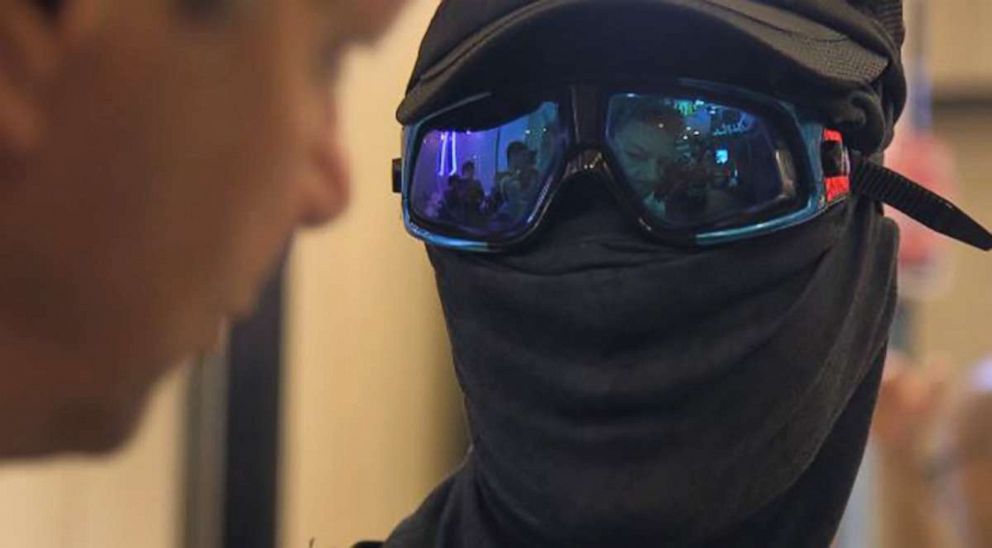
"We do not have any kind of trust in the police force in Hong Kong now," he added. "And we do not have much trust in the judicial system of Hong Kong right now either."
"The government is using the Public Order Ordinance, which is something that is left over from the colonial era," Citizen X said. "They are very strict; they are very harsh, and they put the protester at a very disadvantaged situation."
Hong Kong's Public Order Ordinance imposes sweeping restrictions on the right to assembly with the goal of maintaining "public order."
"That’s why if we want to continue our fights, if we want to continue to protect our city, we have to remain anonymous," Citizen X said.
Encrypted apps, a Reddit-like forum and mass Airdrops are used to spread information
Craig Choy, a lawyer from Hong Kong who focuses on privacy and data protection laws, wrote a manual on how to use encrypted apps for the pro-democracy group after the Umbrella Movement in 2014. An updated version of the manual has been distributed to 2019's demonstrators.
Choy told ABC News the way people organize and congregate for protests are through Telegram and Signal, which are messaging apps that offer end-to-end encryption. Telegram is a cloud-based messaging app that boasts on its website that "messages are heavily encrypted and can self-destruct."
In the past, pro-democracy demonstrators relied on now-outdated methods of "publications on Facebook" or "writing articles in the newspapers," Choy said.
"But nowadays a lot of people are using messenger channels," he said. "They are also using other kind of technologies to collaborate, to work together, to make it easier for them to communicate and consolidate and do their call to actions."
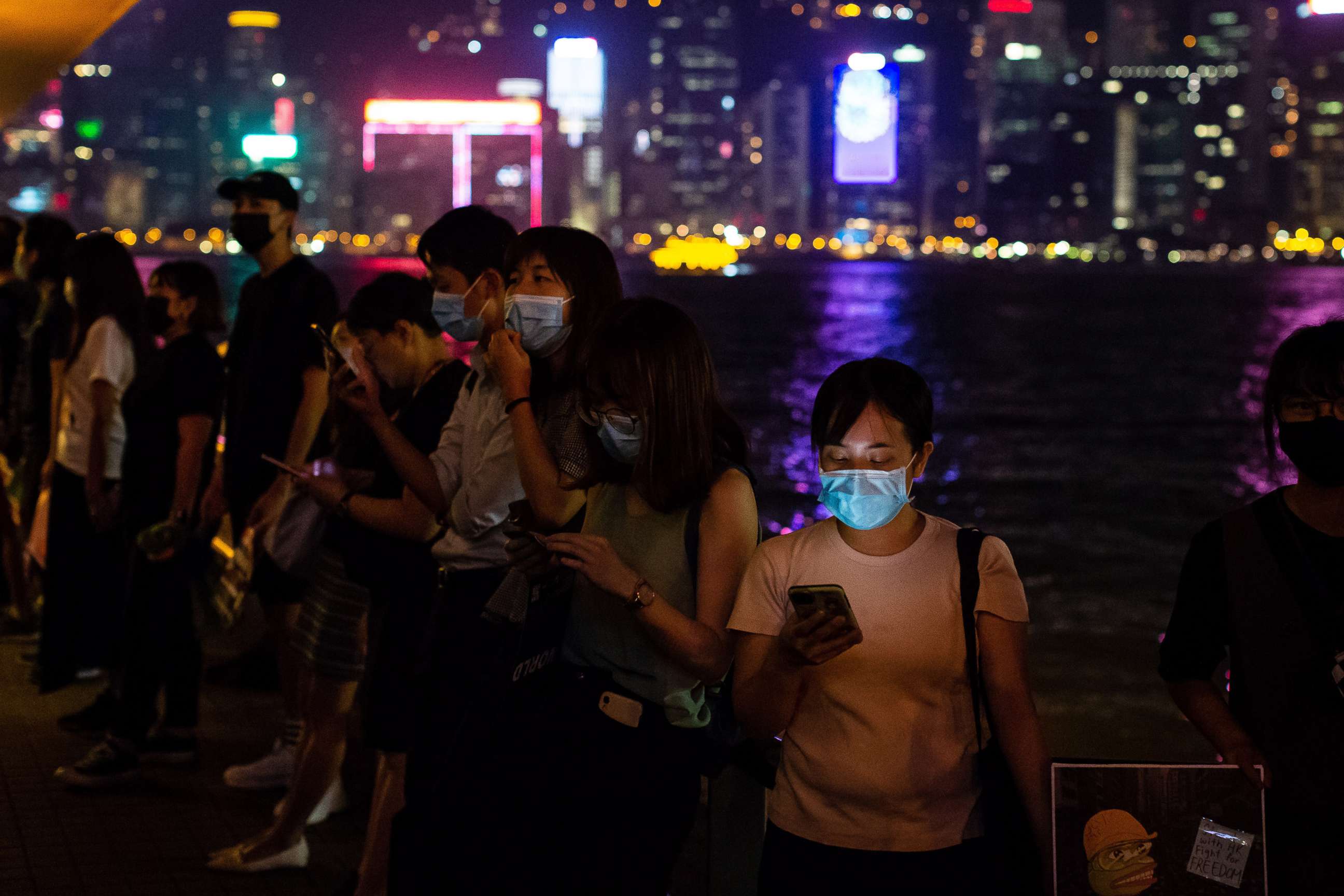
Choy said he spent some time protesting in August and received directions and information through Telegram.
Another piece of technology heavily used by protesters is "the LIHKG forum, which is something like Reddit in the U.S.," Choy said. "A lot of people are using it to discuss political ideas; there are lots of discussions there about where they will move, what they will do next."
Users can then vote on the platform what their favorite ideas or next steps are.
Dramatic images from the Hong Kong protests
The technology, in a way, makes the protests more democratic, according to Choy.
"People are just throwing out their own ideas. The difference is that everyone is anonymous, people will not judge you whether you are a person with a high position in society or whether you are young or rich," he said. "I think because of that a lot of young people can voice their opinion without the baggage of, 'I'm not high-ranking enough in society.'"
"It's very open," Choy said. "For example the protest in the airport, it didn't really get a lot of support, they thought it was a nuisance to visitors to Hong Kong, that's where they formulated the idea to apologize."
Choy also said Apple's Airdrop technology, which allows users to send text, pictures or information through Bluetooth, is being used to spread news to people who may otherwise not receive it through mass airdrops in public places.
"It's a very efficient way to spread information about the protests," Choy said. "It's also because the older generation they just turn on their Bluetooth without knowing it."
Political activist Glacier Kwong, 23, who has also spent time protesting on the streets in Hong Kong, said technology had played a “vital role throughout the movement.”
The online platforms that are being used to organize mean that there are "many facilitators of the movement," and citizens can "organize themselves without revealing their identity."
In addition to the organizing component, technology is a significant help on the front lines of a protest, Kwong said, where people can be updated with "instant news" about "where is safe, where is not."
Citing the 2014 Umbrella Movement, Kwong said one of the biggest issues for protesters then was that “not everyone agrees with the ‘main organizers’ and there are a lot of debates and conflicts.”
“But this time, because technology enables us to get rid of leaders, everyone can do whatever they see fit,” she said. “And it is also harder for the government to deter people from participating.”
"Because no matter who they arrest, there are no leaders,” she added. “Hence, the others can still organize themselves.”
Online anonymity is crucial because 'retaliation on the protesters are very severe'
As Citizen X said, anonymity is vital for those who choose to protest because it can mean risking their livelihoods.
“Technology is being used against protestors for sure,” Kwong said. “It is highly suspected that Hong Kong-ers data are being collected and send to China as there are no regulations governing data transmission."
Choy added that the same tools they use could be later used to "expose the identities of some people," Choy said. "I think that it's very important because you can also see that retaliation on the protesters are very severe."
Some people "have been fired" from their jobs because their online activity was reported, Choy said. This is why many protesters are wearing masks, goggles and helmets.
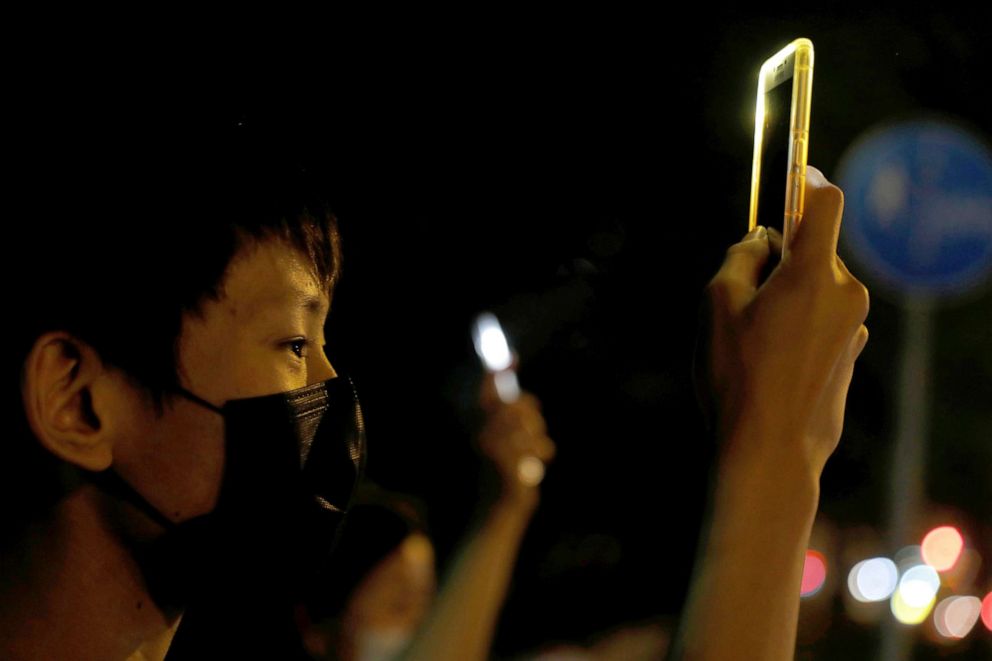
Another way people protect their identity is by using code words such as meeting for a "picnic" when they congregate.
One common term is "dreamwalking," Choy said. "Whenever they go for a protest they will say, 'I am going for a dream.'"
"People are very cautious about what they are saying online now," he said. "They don't want direct evidence that can be collected by Hong Kong police online."
Kwong said she sees online anonymity as “necessary for the advancement of human rights" because it "allows individuals to exercise their freedom of speech and freedom of assembly online."
As tech is being used as a tool, companies like Apple are being dragged in the middle
Apple recently was accused by critics of bowing to pressure from China after it removed a police-tracking app, HKMap.live, from the App Store. Apple defended its decision in a statement saying it has learned that the app "has been used in ways that endanger law enforcement and residents in Hong Kong."
"The app displays police locations, and we have verified with the Hong Kong Cybersecurity and Technology Crime Bureau that the app has been used to target and ambush police, threaten public safety, and criminals have used it to victimize residents in areas where they know there is no law enforcement," the statement added. "This app violates our guidelines and local laws, and we have removed it from the App Store."
While the app lives on in a web server and on Android devices, Choy said he believes Apple's decision will have a "chilling effect" on other app developers and companies who support Hong Kong.
"A lot of these companies nowadays are facing pressure from China," Choy said. "The technology is neutral. By itself, it's not evil or good, it's how people use it that matters."
Moreover, Choy said Apple's move to delete the app is "actually putting the protesters in a very dangerous position."
"Lots of people nowadays, they use that app to know where the police officers are, especially in Hong Kong police brutality is very serious now, and none of them wear the badges and lots of protesters are going on the street and risking their lives," he said. "Even though they are facing police brutality, they have no way to complain."
"A not very brave protester like me would need this app so that I could locate a police officer, so I could get out of this dangerous scene," Choy said.
Apple taking a stand like this will cause other app developers to "think second thoughts" about what kind of apps they make, Choy said, and if they want to stand with Hong Kong.
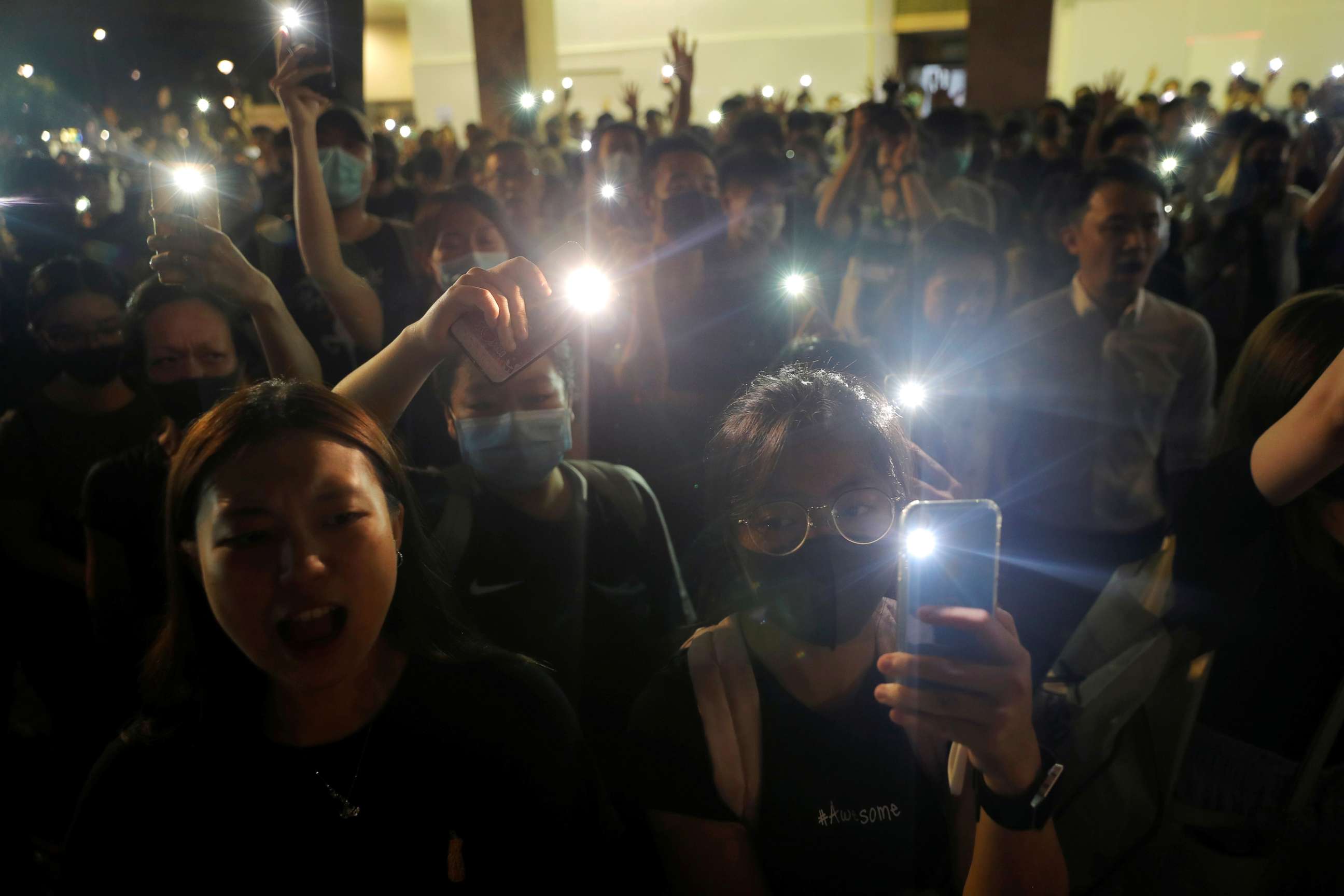
Citizen X said Apple's decision shows that no one is immune to China's threats.
"As we see in recent years, the Chinese rise in power in economic perspective, power in a political perspective, it is constantly exerting influence over other countries, over international community and so on," he said. "That’s why we see Apple has to succumb to the threat of the Chinese government and the Chinese authority to impose some restriction on the application on the Apple store."
ABC News' Karson Yiu contributed to this report.
